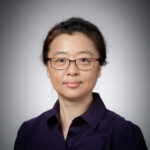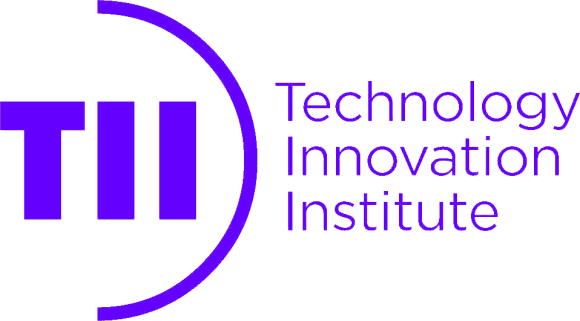List of Panel Sessions
P1: Brain-Like Intelligence and Communications for Beyond 5G
P2: Tactile and Multimodal Communications for 6g Enabled Robotics: Requirements, Architectural Impact, Standardization, and Challenges
P3: Emerging Trends in the Era of 6G and AI
P4: Role of Information Theory on Future Communication
P5: 6G Network Architecture
P6: When 6G meets Robots – a Era of machine to machine GPT
P7: Latest Technologies and Standards of Wireless Body Area Network (BAN)
P8: Unlocking the Potential of 6G: Shaping the Next Generation of Connectivity (WICE)
P9: Young Professional (YP)
P10: Debating Panel – Technologies for 6G: Groundbreaking vs Impractical
P11: Empower Your Passion as a Women in Engineering WICE – Panel Lunch
Unlocking the Potential of 6G: Shaping the Next Generation of Connectivity
Schedule
Panels will be held during the conference program, in parallel to other technical sessions, i.e., on Sep. 6th to 8th, 2023.
P1: Brain-Like Intelligence and Communications for Beyond 5G
Date: Wednesday 06 September
Time: 16:00 – 17:30
Location: Metropolitan West
Moderator: Michel Kadoch, Professor, ÉTS, University of Quebec
Speakers:
Walid Saad, VirginiaTech University, USA
Peiying Zhu, Huawei Canada
Sumei Sun, Director of I2R, Singapore
Osamah Badarneh, German Jordanian University, Jordan
Xianbin Wang, University of Western Ontario, Canada
Abstract:
Recently neuro-science and AI technology was developed rapidly, such as Brain-machine interface (BMI), which enable disabled persons to control outside machines (e.g. robot, computer) to complete sensing, motion, and communication. Efficient interaction between brain and machine is crucially relying on the communication link design, brain signals analysis, and AI technology for brain signal processing and communications.
 Michel Kadoch (Life Senior Member, IEEE) received the Ph.D. degree from Concordia University in 1992. He is currently a Full Professor with the Ecole de Technologie Superieure (ETS), University of Quebec, Montreal, Canada. He is the Director of the Research Laboratory LAGRIT, ETS. As the Principal Investigator, he has managed and participated actively in a research program on QoS for multicast in high-speed networks sponsored by Bell Canada and NSERC. He is currently working on reliable multicast in wireless ad hoc networks and 5G/6G heterogeneous networks.
Michel Kadoch (Life Senior Member, IEEE) received the Ph.D. degree from Concordia University in 1992. He is currently a Full Professor with the Ecole de Technologie Superieure (ETS), University of Quebec, Montreal, Canada. He is the Director of the Research Laboratory LAGRIT, ETS. As the Principal Investigator, he has managed and participated actively in a research program on QoS for multicast in high-speed networks sponsored by Bell Canada and NSERC. He is currently working on reliable multicast in wireless ad hoc networks and 5G/6G heterogeneous networks.
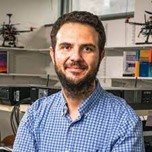 Walid Saad (S’07, M’10, SM’15, F’19) received his Ph.D degree from the University of Oslo, Norway in 2010. He is currently a Professor at the Department of Electrical and Computer Engineering at Virginia Tech, where he leads the Network sciEnce, Wireless, and Security (NEWS) laboratory. He is also the Next-G Wireless Faculty Lead at Virginia Tech’s Innovation Campus. His research interests include wireless networks (5G/6G/beyond), machine learning, game theory, security, UAVs, semantic communications, cyber-physical systems, and network science. Dr. Saad is a Fellow of the IEEE. He is also the recipient of the NSF CAREER award in 2013, the AFOSR summer faculty fellowship in 2014, and the Young Investigator Award from the Office of Naval Research (ONR) in 2015. He was the (co-)author of eleven conference best paper awards at IEEE WiOpt in 2009, ICIMP in 2010, IEEE WCNC in 2012, IEEE PIMRC in 2015, IEEE SmartGridComm in 2015, EuCNC in 2017, IEEE GLOBECOM (2018 and 2020), IFIP NTMS in 2019, IEEE ICC (2020 and 2022). He is the recipient of the 2015 and 2022 Fred W. Ellersick Prize from the IEEE Communications Society, and of the IEEE Communications Society Marconi Prize Award in 2023. He was also a co-author of the papers that received the IEEE Communications Society Young Author Best Paper award in 2019, 2021, and 2023. Other recognitions include the 2017 IEEE ComSoc Best Young Professional in Academia award, the 2018 IEEE ComSoc Radio Communications Committee Early Achievement Award, and the 2019 IEEE ComSoc Communication Theory Technical Committee Early Achievement Award. From 2015-2017, Dr. Saad was named the Stephen O. Lane Junior Faculty Fellow at Virginia Tech and, in 2017, he was named College of Engineering Faculty Fellow. He received the Dean’s award for Research Excellence from Virginia Tech in 2019. He was also an IEEE Distinguished Lecturer in 2019-2020. He has been annually listed in the Clarivate Web of Science Highly Cited Researcher List since 2019. He currently serves as an Area Editor for the IEEE Transactions on Network Science and Engineering and the IEEE Transactions on Communications. He is the Editor-in-Chief for the IEEE Transactions on Machine Learning in Communications and Networking .
Walid Saad (S’07, M’10, SM’15, F’19) received his Ph.D degree from the University of Oslo, Norway in 2010. He is currently a Professor at the Department of Electrical and Computer Engineering at Virginia Tech, where he leads the Network sciEnce, Wireless, and Security (NEWS) laboratory. He is also the Next-G Wireless Faculty Lead at Virginia Tech’s Innovation Campus. His research interests include wireless networks (5G/6G/beyond), machine learning, game theory, security, UAVs, semantic communications, cyber-physical systems, and network science. Dr. Saad is a Fellow of the IEEE. He is also the recipient of the NSF CAREER award in 2013, the AFOSR summer faculty fellowship in 2014, and the Young Investigator Award from the Office of Naval Research (ONR) in 2015. He was the (co-)author of eleven conference best paper awards at IEEE WiOpt in 2009, ICIMP in 2010, IEEE WCNC in 2012, IEEE PIMRC in 2015, IEEE SmartGridComm in 2015, EuCNC in 2017, IEEE GLOBECOM (2018 and 2020), IFIP NTMS in 2019, IEEE ICC (2020 and 2022). He is the recipient of the 2015 and 2022 Fred W. Ellersick Prize from the IEEE Communications Society, and of the IEEE Communications Society Marconi Prize Award in 2023. He was also a co-author of the papers that received the IEEE Communications Society Young Author Best Paper award in 2019, 2021, and 2023. Other recognitions include the 2017 IEEE ComSoc Best Young Professional in Academia award, the 2018 IEEE ComSoc Radio Communications Committee Early Achievement Award, and the 2019 IEEE ComSoc Communication Theory Technical Committee Early Achievement Award. From 2015-2017, Dr. Saad was named the Stephen O. Lane Junior Faculty Fellow at Virginia Tech and, in 2017, he was named College of Engineering Faculty Fellow. He received the Dean’s award for Research Excellence from Virginia Tech in 2019. He was also an IEEE Distinguished Lecturer in 2019-2020. He has been annually listed in the Clarivate Web of Science Highly Cited Researcher List since 2019. He currently serves as an Area Editor for the IEEE Transactions on Network Science and Engineering and the IEEE Transactions on Communications. He is the Editor-in-Chief for the IEEE Transactions on Machine Learning in Communications and Networking .
 Peiying Zhu, Senior Vice President of Wireless Research, is a Huawei Fellow, IEEE Fellow and Fellow of Canadian Academy of Engineering. She is currently leading 6G wireless research and standardization in Huawei. The focus of her research is advanced radio access technologies. She is actively involved in 3GPP and IEEE 802 standards development. She has been regularly giving talks and panel discussions on 5G/6G vision and enabling technologies. She led the team to contribute significantly to 5G technologies and standardization. Many technologies developed by the team have been adopted into 5G standards and implemented in 5G products. She served as the guest editor for IEEE Signal processing magazine special issue on the 5G revolution and IEEE JSAC on Deployment Issues and Performance Challenges for 5G.
Peiying Zhu, Senior Vice President of Wireless Research, is a Huawei Fellow, IEEE Fellow and Fellow of Canadian Academy of Engineering. She is currently leading 6G wireless research and standardization in Huawei. The focus of her research is advanced radio access technologies. She is actively involved in 3GPP and IEEE 802 standards development. She has been regularly giving talks and panel discussions on 5G/6G vision and enabling technologies. She led the team to contribute significantly to 5G technologies and standardization. Many technologies developed by the team have been adopted into 5G standards and implemented in 5G products. She served as the guest editor for IEEE Signal processing magazine special issue on the 5G revolution and IEEE JSAC on Deployment Issues and Performance Challenges for 5G.
Prior to joining Huawei in 2009, Peiying was a Nortel Fellow and Director of Advanced Wireless Access Technology in the Nortel Wireless Technology Lab. She led the team and pioneered research and prototyping on MIMO-OFDM and Multi-hop relay, which were adopted into LTE standards and 4G products. Dr. Zhu has more than 200 granted patents.
 Sumei Sun (Fellow, IEEE) is currently a Principal Scientist, the Deputy Executive Director (Research), and the Head of the Department of Communications and Networks, Institute for Infocomm Research (I2R), Agency for Science, Technology and Research (A*STAR), Singapore. She also holds a joint appointment with the Singapore Institute of Technology and an adjunct appointment with the National University of Singapore, both as a Full Professor. She is also a Member-at-Large of the IEEE Communications Society, and the Board of Governors Member of the IEEE Vehicular Technology Society. She is the Steering Committee Chair of the IEEE Transactions on Machine Learning in Communications and Networking. She is the Editor-in-Chief of the IEEE Open Journal of Vehicular Technology.
Sumei Sun (Fellow, IEEE) is currently a Principal Scientist, the Deputy Executive Director (Research), and the Head of the Department of Communications and Networks, Institute for Infocomm Research (I2R), Agency for Science, Technology and Research (A*STAR), Singapore. She also holds a joint appointment with the Singapore Institute of Technology and an adjunct appointment with the National University of Singapore, both as a Full Professor. She is also a Member-at-Large of the IEEE Communications Society, and the Board of Governors Member of the IEEE Vehicular Technology Society. She is the Steering Committee Chair of the IEEE Transactions on Machine Learning in Communications and Networking. She is the Editor-in-Chief of the IEEE Open Journal of Vehicular Technology.
 Osamah S. Badarneh (Senior Member, IEEE) received the Ph.D. degree in electrical engineering from the University of Quebec-École de Technologie Supérieure, Montreal, QC, Canada, in 2009. He joined German Jordanian University, Amman, Jordan, in 2018 and he is currently a Full Professor with the Department of Electrical Engineering. He was an Adjunct Professor with the Department of Electrical Engineering, University of Quebec-ETS, 2013–2018. From 2012 to 2018, he was an Associate Professor with the Department of Electrical Engineering, University of Tabuk, Tabuk, Saudi Arabia. Also he was an Assistant Professor with the Department of Telecommunication Engineering, Yarmouk University, Irbid, Jordan, from 2010 to 2012. He is the author of more than 100 publications in scientific journals and international conferences. His research interests focus on wireless communications and networking.
Osamah S. Badarneh (Senior Member, IEEE) received the Ph.D. degree in electrical engineering from the University of Quebec-École de Technologie Supérieure, Montreal, QC, Canada, in 2009. He joined German Jordanian University, Amman, Jordan, in 2018 and he is currently a Full Professor with the Department of Electrical Engineering. He was an Adjunct Professor with the Department of Electrical Engineering, University of Quebec-ETS, 2013–2018. From 2012 to 2018, he was an Associate Professor with the Department of Electrical Engineering, University of Tabuk, Tabuk, Saudi Arabia. Also he was an Assistant Professor with the Department of Telecommunication Engineering, Yarmouk University, Irbid, Jordan, from 2010 to 2012. He is the author of more than 100 publications in scientific journals and international conferences. His research interests focus on wireless communications and networking.
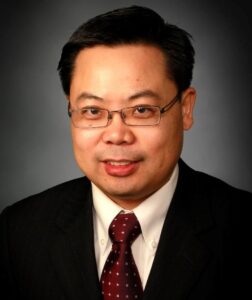 Xianbin Wang is a Professor and Tier-1 Canada Research Chair at Western University, Canada. His current research interests include 5G/6G technologies, Internet-of-Things, communications security, machine learning and intelligent communications. Dr. Wang has over 500 highly cited journal and conference papers, in addition to 30 granted and pending patents and several standard contributions. Dr. Wang is a Fellow of Canadian Academy of Engineering, a Fellow of Engineering Institute of Canada, a Fellow of IEEE and an IEEE Distinguished Lecturer. He has received many prestigious awards and recognitions, including IEEE Canada R.A. Fessenden Award, Canada Research Chair, Engineering Research Excellence Award at Western University and eight IEEE Best Paper Awards. He currently serves/has served as an Editor-in-Chief, Associate Editor-in-Chief, Editor/Associate Editor for over 10 journals. He was involved in the organization of many IEEE conferences including VTC, PIMRC, WCNC, CCECE, GLOBECOM, ICC, and CWIT, in different roles such as general chair, TPC chair, symposium chair, tutorial instructor and keynote speaker. He has been nominated as an IEEE Distinguished Lecturer several times during the last ten years. Dr. Wang was the Chair of IEEE ComSoc Signal Processing and Computing for Communications (SPCC) Technical Committee and is currently serving as the Central Area Chair of IEEE Canada.
Xianbin Wang is a Professor and Tier-1 Canada Research Chair at Western University, Canada. His current research interests include 5G/6G technologies, Internet-of-Things, communications security, machine learning and intelligent communications. Dr. Wang has over 500 highly cited journal and conference papers, in addition to 30 granted and pending patents and several standard contributions. Dr. Wang is a Fellow of Canadian Academy of Engineering, a Fellow of Engineering Institute of Canada, a Fellow of IEEE and an IEEE Distinguished Lecturer. He has received many prestigious awards and recognitions, including IEEE Canada R.A. Fessenden Award, Canada Research Chair, Engineering Research Excellence Award at Western University and eight IEEE Best Paper Awards. He currently serves/has served as an Editor-in-Chief, Associate Editor-in-Chief, Editor/Associate Editor for over 10 journals. He was involved in the organization of many IEEE conferences including VTC, PIMRC, WCNC, CCECE, GLOBECOM, ICC, and CWIT, in different roles such as general chair, TPC chair, symposium chair, tutorial instructor and keynote speaker. He has been nominated as an IEEE Distinguished Lecturer several times during the last ten years. Dr. Wang was the Chair of IEEE ComSoc Signal Processing and Computing for Communications (SPCC) Technical Committee and is currently serving as the Central Area Chair of IEEE Canada.
P2: Tactile and Multimodal Communications for 6g Enabled Robotics: Requirements, Architectural Impact, Standardization, and Challenges
Date: Thursday 07 September
Time: 14:00 – 15:30
Location: Metropolitan Centre
Moderator: Toktam Mahmoodi (King’s College London)
Speakers:
Adnan Aijaz (Toshiba)
Riccardo Trivisonno (Huawei Technologies)
Ulises Olvera-Hernandez (Interdigital)
Mahdi Tavakoli (University of Alberta)
Abstract:
There is a growing demand for robotic applications and remote operation in post pandemic era mainly in healthcare and automation systems which have driven further developments of the Tactile Internet (IEEE 1918.1). Robotic applications are envisioned to penetrate several application areas and societal sectors. Alongside this growth, there are several ongoing developments in mobile communications industry towards enabling diverse services in vertical industries. This panel includes discussions related to integrating mobile communication capability in to robotics systems had gained significant momentum and how this integration can give rise to new possibilities to address relevant industrial and societal challenges.
While 5G ultra-reliable low-latency communications (URLLC) capability is well aligned with the TI low latency requirements, TI applications in different vertical industries have unique requirements on top of URLLC, such as global connectivity, high mobility, low jitter and multimodal synchronicity. The panel further discusses where the current communication systems fall short to satisfy these requirements and what needs to be overcome in 6G for future multimodal communication solutions to be ready for the full vision of the Tactile Internet with a focus on robotic applications.
This panel is endorsed by one6G association (https://one6g.org/ )
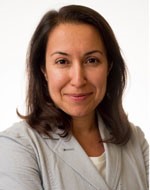 Toktam Mahmoodi [S’06, M’09, SM’16] is a Professor of Communication Engineering and Director of the Centre for Telecommunications Research (CTR) in King’s College London. Previously, she was visiting research scientist at F5 Networks, research associate in Imperial College London, Mobile VCE researcher, and telecom R&D engineer. Toktam is and has been involved in number of European FP7 and H2020 projects on 5G mobile networks, vehicular communications, and Software-defined Networking. Her research focuses on the areas of mobile and cloud networking, and includes ultra-low latency networking, network virtualization, mobility management, network modelling and optimization. She has contributed to the ETSI, IETF and 3GPP standards, and has played an active role within 5GPPP in defining 5G vision for vertical industries. She has also served on number of editorial boards, and the roles include the executive editor of Transactions on Emerging Telecommunications Technologies, series guest editor of JSAC series on network softwarization, area editor of IEEE Communications Standard Magazine on management & orchestration, and editor of IEEE communication letters. Toktam served as general chair of ICT 2021, and has been technical committee chair and member of various IEEE ComSoc conferences.
Toktam Mahmoodi [S’06, M’09, SM’16] is a Professor of Communication Engineering and Director of the Centre for Telecommunications Research (CTR) in King’s College London. Previously, she was visiting research scientist at F5 Networks, research associate in Imperial College London, Mobile VCE researcher, and telecom R&D engineer. Toktam is and has been involved in number of European FP7 and H2020 projects on 5G mobile networks, vehicular communications, and Software-defined Networking. Her research focuses on the areas of mobile and cloud networking, and includes ultra-low latency networking, network virtualization, mobility management, network modelling and optimization. She has contributed to the ETSI, IETF and 3GPP standards, and has played an active role within 5GPPP in defining 5G vision for vertical industries. She has also served on number of editorial boards, and the roles include the executive editor of Transactions on Emerging Telecommunications Technologies, series guest editor of JSAC series on network softwarization, area editor of IEEE Communications Standard Magazine on management & orchestration, and editor of IEEE communication letters. Toktam served as general chair of ICT 2021, and has been technical committee chair and member of various IEEE ComSoc conferences.
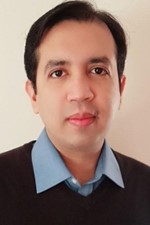 Adnan Aijaz (M’14–SM’18) is a Principal Researcher Engineer with the Telecommunications Research Laboratory of Toshiba Research Europe Ltd. He has over 7 years of experience in the wireless domain working in industrial, academic and corporate research sectors. He received the Ph.D. degree in Telecommunications Engineering from King’s College London, UK. His research broadly focuses on design and optimization of wireless networks. At Toshiba, he is actively engaged in industrial wireless research focusing on Bluetooth, 6TiSCH, WLAN, and 5G technologies. He is an associate editor for the IEEE Internet of Things Journal and frequently serves as a TPC member for various flagship IEEE conferences. He is a senior member of IEEE.
Adnan Aijaz (M’14–SM’18) is a Principal Researcher Engineer with the Telecommunications Research Laboratory of Toshiba Research Europe Ltd. He has over 7 years of experience in the wireless domain working in industrial, academic and corporate research sectors. He received the Ph.D. degree in Telecommunications Engineering from King’s College London, UK. His research broadly focuses on design and optimization of wireless networks. At Toshiba, he is actively engaged in industrial wireless research focusing on Bluetooth, 6TiSCH, WLAN, and 5G technologies. He is an associate editor for the IEEE Internet of Things Journal and frequently serves as a TPC member for various flagship IEEE conferences. He is a senior member of IEEE.
 Riccardo Trivisonno (Senior Member, IEEE) joined Huawei Technologies in 2011 and is currently serving as Head of Network Architecture – Research and Standardisation – for the Advanced Wireless Technologies Laboratory, at Munich Research Center. Over the past ten years, he has been a leading contributor to the definition and the standardisation of 5G network architecture and technologies, delivering to 3GPP Releases 15, 16, 17 and 18 – in the areas of architecture modularization, network slicing, network analytics and QoS – filing ~100 Standard Essential Patent applications. His research team has been focusing on 6G enabling technologies since 2020. He has been Chairman of 6G-IA Pre-standardization WG since 2020, Board Member of one6G Association since its foundation, in 2021, and he was elected one6G Board Vice-Chair in 2023. He received his Ph.D and M.Sc degrees in telecommunications engineering from the University of Bologna in 2005 and 2000.
Riccardo Trivisonno (Senior Member, IEEE) joined Huawei Technologies in 2011 and is currently serving as Head of Network Architecture – Research and Standardisation – for the Advanced Wireless Technologies Laboratory, at Munich Research Center. Over the past ten years, he has been a leading contributor to the definition and the standardisation of 5G network architecture and technologies, delivering to 3GPP Releases 15, 16, 17 and 18 – in the areas of architecture modularization, network slicing, network analytics and QoS – filing ~100 Standard Essential Patent applications. His research team has been focusing on 6G enabling technologies since 2020. He has been Chairman of 6G-IA Pre-standardization WG since 2020, Board Member of one6G Association since its foundation, in 2021, and he was elected one6G Board Vice-Chair in 2023. He received his Ph.D and M.Sc degrees in telecommunications engineering from the University of Bologna in 2005 and 2000.
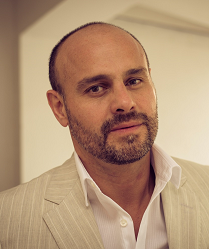 Ulises Olvera-Hernandez is a Senior Principal Engineer for InterDigital, responsible for developing 5G 3GPP System Architecture Evolution Standards. Prior to joining InterDigital, Ulises spend 15 year at Ericsson in Mexico, Canada, Sweden and Ireland developing Cellular Systems for International markets. Ulises holds a bachelor’s degree in Mechanical and Electrical Engineering from National Autonomous University of Mexico (UNAM). Ulises has co-authored more than 150 granted patents, and he has more than 30 years of experience in the Research and Development of Cellular Systems, with emphasis in the development of the 3GPP 5G Next Generation Network and beyond.
Ulises Olvera-Hernandez is a Senior Principal Engineer for InterDigital, responsible for developing 5G 3GPP System Architecture Evolution Standards. Prior to joining InterDigital, Ulises spend 15 year at Ericsson in Mexico, Canada, Sweden and Ireland developing Cellular Systems for International markets. Ulises holds a bachelor’s degree in Mechanical and Electrical Engineering from National Autonomous University of Mexico (UNAM). Ulises has co-authored more than 150 granted patents, and he has more than 30 years of experience in the Research and Development of Cellular Systems, with emphasis in the development of the 3GPP 5G Next Generation Network and beyond.
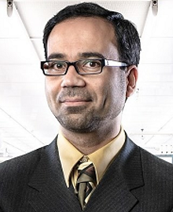 Mahdi Tavakoli is a Professor in the Department of Electrical and Computer Engineering, University of Alberta, Canada. He received his BSc and MSc degrees in Electrical Engineering from Ferdowsi University and K.N. Toosi University, Iran, in 1996 and 1999, respectively. He received his PhD degree in Electrical and Computer Engineering from the University of Western Ontario, Canada, in 2005. In 2006, he was a post-doctoral researcher at Canadian Surgical Technologies and Advanced Robotics (CSTAR), Canada. In 2007-2008, he was an NSERC Post-Doctoral Fellow at Harvard University, USA. Dr. Tavakoli’s research interests broadly involve the areas of robotics and systems control. Specifically, his research focuses on haptics and teleoperation control, medical robotics, and image-guided surgery. Dr. Tavakoli is the lead author of Haptics for Teleoperated Surgical Robotic Systems (World Scientific, 2008). He is a Senior Member of IEEE, Specialty Chief Editor for Frontiers in Robotics and AI (Robot Design Section), and an Associate Editor for the International Journal of Robotics Research, IEEE Transactions on Medical Robotics and Bionics, IEEE Robotics and Automation Letters, IEEE TMECH/AIM Emerging Topics Focused Section, Journal of Medical Robotics Research, and Medical & Biological Engineering & Computing.
Mahdi Tavakoli is a Professor in the Department of Electrical and Computer Engineering, University of Alberta, Canada. He received his BSc and MSc degrees in Electrical Engineering from Ferdowsi University and K.N. Toosi University, Iran, in 1996 and 1999, respectively. He received his PhD degree in Electrical and Computer Engineering from the University of Western Ontario, Canada, in 2005. In 2006, he was a post-doctoral researcher at Canadian Surgical Technologies and Advanced Robotics (CSTAR), Canada. In 2007-2008, he was an NSERC Post-Doctoral Fellow at Harvard University, USA. Dr. Tavakoli’s research interests broadly involve the areas of robotics and systems control. Specifically, his research focuses on haptics and teleoperation control, medical robotics, and image-guided surgery. Dr. Tavakoli is the lead author of Haptics for Teleoperated Surgical Robotic Systems (World Scientific, 2008). He is a Senior Member of IEEE, Specialty Chief Editor for Frontiers in Robotics and AI (Robot Design Section), and an Associate Editor for the International Journal of Robotics Research, IEEE Transactions on Medical Robotics and Bionics, IEEE Robotics and Automation Letters, IEEE TMECH/AIM Emerging Topics Focused Section, Journal of Medical Robotics Research, and Medical & Biological Engineering & Computing.
P3: Emerging Trends in the Era of 6G and AI
Date: Thursday 07 September
Time: 14:00 – 15:30
Location: Metropolitan West
Moderator: Wei Yu, University of Toronto, Canada
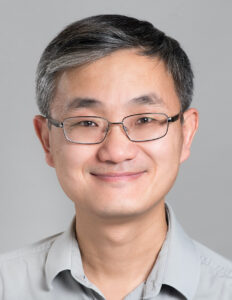 Wei Yu received the B.A.Sc. degree in computer engineering and mathematics from the University of Waterloo, Waterloo, ON, Canada, in 1997, and the M.S. and Ph.D. degrees in electrical engineering from Stanford University, Stanford, CA, USA, in 1998 and 2002, respectively. He is now a Professor in the Electrical and Computer Engineering Department at the University of Toronto, Toronto, ON, Canada, where he holds the Canada Research Chair (Tier 1) in Information Theory and Wireless Communications. He is a Fellow of IEEE, a Fellow of the Canadian Academy of Engineering and a member of the College of New Scholars, Artists, and Scientists of the Royal Society of Canada. Prof. Wei Yu was the President of the IEEE Information Theory Society in 2021, and has served on its Board of Governors since 2015. He served as the Chair of the Signal Processing for Communications and Networking Technical Committee of the IEEE Signal Processing Society from 2017 to 2018. He was an IEEE Communications Society Distinguished Lecturer from 2015 to 2016. Prof. Wei Yu received the Steacie Memorial Fellowship in 2015, the IEEE Marconi Prize Paper Award in Wireless Communications in 2019, the IEEE Communications Society Award for Advances in Communication in 2019, the IEEE Signal Processing Society Best Paper Award in 2008, 2017 and 2021, the Journal of Communications and Networks Best Paper Award in 2017, and the IEEE Communications Society Best Tutorial Paper Award in 2015. He has served as an Area Editor for the IEEE Transactions on Wireless Communications, and as an Associate Editor for IEEE Transactions on Information Theory, IEEE Transactions on Communications, and IEEE Transactions on Wireless Communications.
Wei Yu received the B.A.Sc. degree in computer engineering and mathematics from the University of Waterloo, Waterloo, ON, Canada, in 1997, and the M.S. and Ph.D. degrees in electrical engineering from Stanford University, Stanford, CA, USA, in 1998 and 2002, respectively. He is now a Professor in the Electrical and Computer Engineering Department at the University of Toronto, Toronto, ON, Canada, where he holds the Canada Research Chair (Tier 1) in Information Theory and Wireless Communications. He is a Fellow of IEEE, a Fellow of the Canadian Academy of Engineering and a member of the College of New Scholars, Artists, and Scientists of the Royal Society of Canada. Prof. Wei Yu was the President of the IEEE Information Theory Society in 2021, and has served on its Board of Governors since 2015. He served as the Chair of the Signal Processing for Communications and Networking Technical Committee of the IEEE Signal Processing Society from 2017 to 2018. He was an IEEE Communications Society Distinguished Lecturer from 2015 to 2016. Prof. Wei Yu received the Steacie Memorial Fellowship in 2015, the IEEE Marconi Prize Paper Award in Wireless Communications in 2019, the IEEE Communications Society Award for Advances in Communication in 2019, the IEEE Signal Processing Society Best Paper Award in 2008, 2017 and 2021, the Journal of Communications and Networks Best Paper Award in 2017, and the IEEE Communications Society Best Tutorial Paper Award in 2015. He has served as an Area Editor for the IEEE Transactions on Wireless Communications, and as an Associate Editor for IEEE Transactions on Information Theory, IEEE Transactions on Communications, and IEEE Transactions on Wireless Communications.
Speakers:
Vincent Wong, University of British Columbia, Canada
Harpreet Dhillon, Virginia Tech, USA
Xianbin Wang, University of Western Ontario, Canada
Petar Popovski, Aalborg University, Denmark
Abstract: What are the emerging trends in the era of 6G and artificial intelligence (AI)? Which ones will become mega-trends, and which ones may eventually fade over time? This panel will discuss the impact of AI on future 6G communications and networking, as well as the role of 6G for supporting AI applications. A lively debate will be held on topics ranging from the roles of machine learning, semantic communications, generative AI, and large language models, to the promises of integrated sensing and communications, open radio-access network (O-RAN), meta-surface, and Tera-Hz communications for 6G. The panel will pose questions on the future directions of wireless communications and ask which of these will be transient and which ones will have lasting impact.
Speaker Bios:
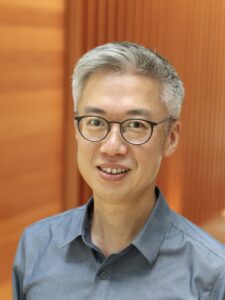 Vincent Wong is a Professor in the Department of Electrical and Computer Engineering at the University of British Columbia, Vancouver, Canada. His research areas include protocol design, optimization, and resource management of communication networks, with applications to the Internet, wireless networks, smart grid, mobile edge computing, and Internet of Things. Currently, Dr. Wong is the Editor-in-Chief of the IEEE Transactions on Wireless Communications. He is a Fellow of the IEEE.
Vincent Wong is a Professor in the Department of Electrical and Computer Engineering at the University of British Columbia, Vancouver, Canada. His research areas include protocol design, optimization, and resource management of communication networks, with applications to the Internet, wireless networks, smart grid, mobile edge computing, and Internet of Things. Currently, Dr. Wong is the Editor-in-Chief of the IEEE Transactions on Wireless Communications. He is a Fellow of the IEEE.
 Xianbin Wang is a Professor and Tier-1 Canada Research Chair at Western University, Canada. His current research interests include 5G/6G technologies, Internet-of-Things, communications security, machine learning and intelligent communications. Dr. Wang has over 500 highly cited journal and conference papers, in addition to 30 granted and pending patents and several standard contributions. Dr. Wang is a Fellow of Canadian Academy of Engineering, a Fellow of Engineering Institute of Canada, a Fellow of IEEE and an IEEE Distinguished Lecturer. He has received many prestigious awards and recognitions, including IEEE Canada R.A. Fessenden Award, Canada Research Chair, Engineering Research Excellence Award at Western University and eight IEEE Best Paper Awards. He currently serves/has served as an Editor-in-Chief, Associate Editor-in-Chief, Editor/Associate Editor for over 10 journals. He was involved in the organization of many IEEE conferences including VTC, PIMRC, WCNC, CCECE, GLOBECOM, ICC, and CWIT, in different roles such as general chair, TPC chair, symposium chair, tutorial instructor and keynote speaker. He has been nominated as an IEEE Distinguished Lecturer several times during the last ten years. Dr. Wang was the Chair of IEEE ComSoc Signal Processing and Computing for Communications (SPCC) Technical Committee and is currently serving as the Central Area Chair of IEEE Canada.
Xianbin Wang is a Professor and Tier-1 Canada Research Chair at Western University, Canada. His current research interests include 5G/6G technologies, Internet-of-Things, communications security, machine learning and intelligent communications. Dr. Wang has over 500 highly cited journal and conference papers, in addition to 30 granted and pending patents and several standard contributions. Dr. Wang is a Fellow of Canadian Academy of Engineering, a Fellow of Engineering Institute of Canada, a Fellow of IEEE and an IEEE Distinguished Lecturer. He has received many prestigious awards and recognitions, including IEEE Canada R.A. Fessenden Award, Canada Research Chair, Engineering Research Excellence Award at Western University and eight IEEE Best Paper Awards. He currently serves/has served as an Editor-in-Chief, Associate Editor-in-Chief, Editor/Associate Editor for over 10 journals. He was involved in the organization of many IEEE conferences including VTC, PIMRC, WCNC, CCECE, GLOBECOM, ICC, and CWIT, in different roles such as general chair, TPC chair, symposium chair, tutorial instructor and keynote speaker. He has been nominated as an IEEE Distinguished Lecturer several times during the last ten years. Dr. Wang was the Chair of IEEE ComSoc Signal Processing and Computing for Communications (SPCC) Technical Committee and is currently serving as the Central Area Chair of IEEE Canada.
 Harpreet S. Dhillon received the B.Tech. degree in electronics and communication engineering from IIT Guwahati in 2008, the M.S. degree in electrical engineering from Virginia Tech in 2010, and the Ph.D. degree in electrical engineering from the University of Texas at Austin in 2013. After serving as a Viterbi Postdoctoral Fellow at the University of Southern California for a year, he joined Virginia Tech in 2014, where he is currently a Professor of electrical and computer engineering, the chair of the communications area, the Associate Director of Wireless@VT research group, and the Elizabeth and James E. Turner Jr. ’56 Faculty Fellow. His research interests include communication theory, wireless networks, geolocation, and stochastic geometry. He is a fellow of IEEE, a fellow of AAIA, and a Clarivate Analytics (Web of Science) Highly Cited Researcher. He has received six best paper awards including the 2014 IEEE Leonard G. Abraham Prize, the 2015 IEEE ComSoc Young Author Best Paper Award, and the 2016 IEEE Heinrich Hertz Award. He has also received Early Achievement Awards from three IEEE ComSoc Technical Committees, namely, the Communication Theory Technical Committee (CTTC) in 2020, the Radio Communications Committee (RCC) in 2020, and the Wireless Communications Technical Committee (WTC) in 2021. He was named the 2017 Outstanding New Assistant Professor, the 2018 Steven O. Lane Junior Faculty Fellow, the 2018 College of Engineering Faculty Fellow, and the recipient of the 2020 Dean’s Award for Excellence in Research by Virginia Tech. His other academic honors include the 2008 Agilent Engineering and Technology Award, the UT Austin MCD Fellowship, the 2013 UT Austin WNCG leadership award, and the inaugural IIT Guwahati Young Alumni Achiever Award 2020. He has served as the TPC Co-chair for IEEE WCNC 2022 and as a symposium TPC Co-chair for many IEEE conferences. He has also served on the Editorial boards of several IEEE journals with his current appointments being on the Executive Editorial Committee for Transactions on Wireless Communications and as a Senior Editor for IEEE Wireless Communications Letters.
Harpreet S. Dhillon received the B.Tech. degree in electronics and communication engineering from IIT Guwahati in 2008, the M.S. degree in electrical engineering from Virginia Tech in 2010, and the Ph.D. degree in electrical engineering from the University of Texas at Austin in 2013. After serving as a Viterbi Postdoctoral Fellow at the University of Southern California for a year, he joined Virginia Tech in 2014, where he is currently a Professor of electrical and computer engineering, the chair of the communications area, the Associate Director of Wireless@VT research group, and the Elizabeth and James E. Turner Jr. ’56 Faculty Fellow. His research interests include communication theory, wireless networks, geolocation, and stochastic geometry. He is a fellow of IEEE, a fellow of AAIA, and a Clarivate Analytics (Web of Science) Highly Cited Researcher. He has received six best paper awards including the 2014 IEEE Leonard G. Abraham Prize, the 2015 IEEE ComSoc Young Author Best Paper Award, and the 2016 IEEE Heinrich Hertz Award. He has also received Early Achievement Awards from three IEEE ComSoc Technical Committees, namely, the Communication Theory Technical Committee (CTTC) in 2020, the Radio Communications Committee (RCC) in 2020, and the Wireless Communications Technical Committee (WTC) in 2021. He was named the 2017 Outstanding New Assistant Professor, the 2018 Steven O. Lane Junior Faculty Fellow, the 2018 College of Engineering Faculty Fellow, and the recipient of the 2020 Dean’s Award for Excellence in Research by Virginia Tech. His other academic honors include the 2008 Agilent Engineering and Technology Award, the UT Austin MCD Fellowship, the 2013 UT Austin WNCG leadership award, and the inaugural IIT Guwahati Young Alumni Achiever Award 2020. He has served as the TPC Co-chair for IEEE WCNC 2022 and as a symposium TPC Co-chair for many IEEE conferences. He has also served on the Editorial boards of several IEEE journals with his current appointments being on the Executive Editorial Committee for Transactions on Wireless Communications and as a Senior Editor for IEEE Wireless Communications Letters.
 Petar Popovski is a Professor at Aalborg University, where he heads the section on Connectivity and a Visiting Excellence Chair at the University of Bremen. He received his Dipl.-Ing and M. Sc. degrees in communication engineering from the University of Sts. Cyril and Methodius in Skopje and the Ph.D. degree from Aalborg University in 2005. He is a Fellow of the IEEE. He received an ERC Consolidator Grant (2015), the Danish Elite Researcher award (2016), IEEE Fred W. Ellersick prize (2016), IEEE Stephen O. Rice prize (2018), Technical Achievement Award from the IEEE Technical Committee on Smart Grid Communications (2019), the Danish Telecommunication Prize (2020) and Villum Investigator Grant (2021). He is currently the Editor-in-Chief of IEEEE JOURNAL ON SELECTED AREAS IN COMMUNICATIONS. Prof. Popovski was the General Chair for IEEE SmartGridComm 2018 and IEEE Communication Theory Workshop 2019. He authored the book “Wireless Connectivity: An Intuitive and Fundamental Guide”, published by Wiley in 2020. His research interests are in communication theory and wireless connectivity.
Petar Popovski is a Professor at Aalborg University, where he heads the section on Connectivity and a Visiting Excellence Chair at the University of Bremen. He received his Dipl.-Ing and M. Sc. degrees in communication engineering from the University of Sts. Cyril and Methodius in Skopje and the Ph.D. degree from Aalborg University in 2005. He is a Fellow of the IEEE. He received an ERC Consolidator Grant (2015), the Danish Elite Researcher award (2016), IEEE Fred W. Ellersick prize (2016), IEEE Stephen O. Rice prize (2018), Technical Achievement Award from the IEEE Technical Committee on Smart Grid Communications (2019), the Danish Telecommunication Prize (2020) and Villum Investigator Grant (2021). He is currently the Editor-in-Chief of IEEEE JOURNAL ON SELECTED AREAS IN COMMUNICATIONS. Prof. Popovski was the General Chair for IEEE SmartGridComm 2018 and IEEE Communication Theory Workshop 2019. He authored the book “Wireless Connectivity: An Intuitive and Fundamental Guide”, published by Wiley in 2020. His research interests are in communication theory and wireless connectivity.
P4: Role of Information Theory on Future Communication
Date: Wednesday 06 September
Time: 14:00 – 15:30
Location: Metropolitan West
Moderator: Huazi Zhang, Huawei Canada
Moderator Bio:
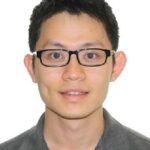 Huazi Zhang (Senior Member, IEEE) received his B.Sc. and Ph.D. degrees from Institute of Information and Communication Engineering in 2008 and 2013, respectively, from Zhejiang University. From 2011 to 2013, he was a visiting researcher with the Department of Electrical and Computer Engineering, North Carolina State University, Raleigh, NC, USA. From 2013 to 2014, he was a Research Fellow with the School of Computer Engineering, Nanyang Technological University, Singapore. From 2014 to 2015, he was a Research Scholar with the Department of Electrical and Computer Engineering, University of Florida, Gainesville, FL, USA.
Huazi Zhang (Senior Member, IEEE) received his B.Sc. and Ph.D. degrees from Institute of Information and Communication Engineering in 2008 and 2013, respectively, from Zhejiang University. From 2011 to 2013, he was a visiting researcher with the Department of Electrical and Computer Engineering, North Carolina State University, Raleigh, NC, USA. From 2013 to 2014, he was a Research Fellow with the School of Computer Engineering, Nanyang Technological University, Singapore. From 2014 to 2015, he was a Research Scholar with the Department of Electrical and Computer Engineering, University of Florida, Gainesville, FL, USA.
He joined Huawei Technologies Co., Ltd in 2015. Since then, he has engaged in research projects on advanced wireless communications involving channel coding and signal processing techniques, and engaged in multiple standardization activities. His contribution led to the adoption of many state-of-the-art research results into 5G standards, as well as the subsequent commercial rollout. His current research interests are channel coding, information theory and signal processing for wireless communications, with focus on theoretical analysis, algorithm design and hardware implementations for 5G and beyond.
Speakers:
Jun Chen, McMaster University
Ekram Hossain, University of Manitoba
Walid Saad, VirginiaTech University, USA
Masoud Ardakani, University of Alberta
Abstract:
After over six decades of research efforts, the theoretical limit promised by Shannon has been delivered both in theory and practice. As humanity evolves into connected intelligence, the native connection between artificial intelligence (AI) and communications is yet to be explored. In 6G, where the same radio will undertake both sensing and communication tasks. We must understand the fundamental tradeoffs between the multiple tasks to deliver services that are tailored for each scenario.
In this panel, we will bring together distinguished professors and engineers from information theory and communication communities to discuss new research opportunities in information theory.
- What are the top 5 most relevant KPIs for future communications. What are the fundamental tradeoffs among these KPIs.
- Following the current technology trend, such as generative AI (ChatGPT) and mixed reality devices (Vision Pro), what new functions should be supported by the next-generation communication networks?
- How to model the performance of wireless sensing from the information theoretic perspective? And how to analyze the fundamental tradeoff between sensing and communications in ISAC considering the two distinct performance metrics.
- Back to communications, do you think there will be a 10x~100x network throughput increase? If so, what are the key enabling technologies, e.g., T-MIMO, channel coding, etc.
- As communications and sensing become ever ubiquitous, is it possible to establish a information theoretic framework to model the communication cost (processing complexity, energy, etc), in order to reduce carbon footprint for both BS and UE.
- What current theories, e.g., mathematics and physics, will play a pivotal role for future communications, the way Shannon theory did to modern communications.
Speaker Bios:
 Jun Chen received the B.S. degree in Electronic Engineering from Shanghai Jiao Tong University in 2001, and the M.S. and Ph.D. degrees in Electrical and Computer Engineering from Cornell University in 2004 and 2006, respectively. He was a Postdoctoral Research Associate in the Coordinated Science Laboratory at the University of Illinois at Urbana-Champaign from September 2005 to July 2006, and a Postdoctoral Fellow at the IBM Thomas J. Watson Research Center from July 2006 to August 2007. Since September 2007 he has been with the Department of Electrical and Computer Engineering at McMaster University, where he is currently a Professor. He held the title of the Barber-Gennum Chair in Information Technology from 2008 to 2013 and the title of the Joseph Ip Distinguished Engineering Fellow from 2016 to 2018. He was a recipient of the Josef Raviv Memorial Postdoctoral Fellowship (2006), the Early Researcher Award from the Province of Ontario (2010), the IBM Faculty Award (2010), the ICC Best Paper Award (2020), and the JSPS Invitational Fellowship (2021). He served as an Editor of the IEEE Transactions on Green Communications and Networking from 2020 to 2021. He is currently an Associate Editor of the IEEE Transactions on Information Theory and the IEEE Transactions on Communications.
Jun Chen received the B.S. degree in Electronic Engineering from Shanghai Jiao Tong University in 2001, and the M.S. and Ph.D. degrees in Electrical and Computer Engineering from Cornell University in 2004 and 2006, respectively. He was a Postdoctoral Research Associate in the Coordinated Science Laboratory at the University of Illinois at Urbana-Champaign from September 2005 to July 2006, and a Postdoctoral Fellow at the IBM Thomas J. Watson Research Center from July 2006 to August 2007. Since September 2007 he has been with the Department of Electrical and Computer Engineering at McMaster University, where he is currently a Professor. He held the title of the Barber-Gennum Chair in Information Technology from 2008 to 2013 and the title of the Joseph Ip Distinguished Engineering Fellow from 2016 to 2018. He was a recipient of the Josef Raviv Memorial Postdoctoral Fellowship (2006), the Early Researcher Award from the Province of Ontario (2010), the IBM Faculty Award (2010), the ICC Best Paper Award (2020), and the JSPS Invitational Fellowship (2021). He served as an Editor of the IEEE Transactions on Green Communications and Networking from 2020 to 2021. He is currently an Associate Editor of the IEEE Transactions on Information Theory and the IEEE Transactions on Communications.
 Ekram Hossain (F’15) is a Professor and the Associate Head (Graduate Studies) in the Department of Electrical and Computer Engineering at University of Manitoba, Canada. He is a Member (Class of 2016) of the College of the Royal Society of Canada. Also, he is a Fellow of the Canadian Academy of Engineering and a Fellow of the Engineering Institute of Canada. Dr. Hossain’s current research interests include design, analysis, and optimization beyond 5G cellular wireless networks. He was elevated to an IEEE Fellow “for contributions to spectrum management and resource allocation in cognitive and cellular radio networks”. He received the 2017 IEEE ComSoc TCGCC (Technical Committee on Green Communications & Computing) Distinguished Technical Achievement Recognition Award “for outstanding technical leadership and achievement in green wireless communications and networking”. Dr. Hossain has won several research awards including the “2017 IEEE Communications Society Best Survey Paper Award and the 2011 IEEE Communications Society Fred Ellersick Prize Paper Award. He was listed as a Clarivate Analytics Highly Cited Researcher in Computer Science in 2017, 2018, 2019, 2020, 2021, and 2022. Currently he serves as an Editor for the IEEE Transactions on Mobile Computing. Previously, he served as the Editor-in-Chief (EiC) of the IEEE Press (2018-2021) and the EiC of the IEEE Communications Surveys and Tutorials (2012-2016). He was a Distinguished Lecturer of the IEEE Communications Society and the IEEE Vehicular Technology Society. He served as the Director of Magazines for the IEEE Communications Society (2020-2021). Also, he was an elected member of the Board of Governors of the IEEE Communications Society for the term 2018-2020.
Ekram Hossain (F’15) is a Professor and the Associate Head (Graduate Studies) in the Department of Electrical and Computer Engineering at University of Manitoba, Canada. He is a Member (Class of 2016) of the College of the Royal Society of Canada. Also, he is a Fellow of the Canadian Academy of Engineering and a Fellow of the Engineering Institute of Canada. Dr. Hossain’s current research interests include design, analysis, and optimization beyond 5G cellular wireless networks. He was elevated to an IEEE Fellow “for contributions to spectrum management and resource allocation in cognitive and cellular radio networks”. He received the 2017 IEEE ComSoc TCGCC (Technical Committee on Green Communications & Computing) Distinguished Technical Achievement Recognition Award “for outstanding technical leadership and achievement in green wireless communications and networking”. Dr. Hossain has won several research awards including the “2017 IEEE Communications Society Best Survey Paper Award and the 2011 IEEE Communications Society Fred Ellersick Prize Paper Award. He was listed as a Clarivate Analytics Highly Cited Researcher in Computer Science in 2017, 2018, 2019, 2020, 2021, and 2022. Currently he serves as an Editor for the IEEE Transactions on Mobile Computing. Previously, he served as the Editor-in-Chief (EiC) of the IEEE Press (2018-2021) and the EiC of the IEEE Communications Surveys and Tutorials (2012-2016). He was a Distinguished Lecturer of the IEEE Communications Society and the IEEE Vehicular Technology Society. He served as the Director of Magazines for the IEEE Communications Society (2020-2021). Also, he was an elected member of the Board of Governors of the IEEE Communications Society for the term 2018-2020.
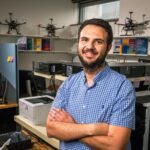 Walid Saad (S’07, M’10, SM’15, F’19) received his Ph.D degree from the University of Oslo, Norway in 2010. He is currently a Professor at the Department of Electrical and Computer Engineering at Virginia Tech, where he leads the Network sciEnce, Wireless, and Security (NEWS) laboratory. He is also the Next-G Wireless Faculty Lead at Virginia Tech’s Innovation Campus. His research interests include wireless networks (5G/6G/beyond), machine learning, game theory, security, UAVs, semantic communications, cyber-physical systems, and network science. Dr. Saad is a Fellow of the IEEE. He is also the recipient of the NSF CAREER award in 2013, the AFOSR summer faculty fellowship in 2014, and the Young Investigator Award from the Office of Naval Research (ONR) in 2015. He was the (co-)author of eleven conference best paper awards at IEEE WiOpt in 2009, ICIMP in 2010, IEEE WCNC in 2012, IEEE PIMRC in 2015, IEEE SmartGridComm in 2015, EuCNC in 2017, IEEE GLOBECOM (2018 and 2020), IFIP NTMS in 2019, IEEE ICC (2020 and 2022). He is the recipient of the 2015 and 2022 Fred W. Ellersick Prize from the IEEE Communications Society, and of the IEEE Communications Society Marconi Prize Award in 2023. He was also a co-author of the papers that received the IEEE Communications Society Young Author Best Paper award in 2019, 2021, and 2023. Other recognitions include the 2017 IEEE ComSoc Best Young Professional in Academia award, the 2018 IEEE ComSoc Radio Communications Committee Early Achievement Award, and the 2019 IEEE ComSoc Communication Theory Technical Committee Early Achievement Award. From 2015-2017, Dr. Saad was named the Stephen O. Lane Junior Faculty Fellow at Virginia Tech and, in 2017, he was named College of Engineering Faculty Fellow. He received the Dean’s award for Research Excellence from Virginia Tech in 2019. He was also an IEEE Distinguished Lecturer in 2019-2020. He has been annually listed in the Clarivate Web of Science Highly Cited Researcher List since 2019. He currently serves as an Area Editor for the IEEE Transactions on Network Science and Engineering and the IEEE Transactions on Communications. He is the Editor-in-Chief for the IEEE Transactions on Machine Learning in Communications and Networking.
Walid Saad (S’07, M’10, SM’15, F’19) received his Ph.D degree from the University of Oslo, Norway in 2010. He is currently a Professor at the Department of Electrical and Computer Engineering at Virginia Tech, where he leads the Network sciEnce, Wireless, and Security (NEWS) laboratory. He is also the Next-G Wireless Faculty Lead at Virginia Tech’s Innovation Campus. His research interests include wireless networks (5G/6G/beyond), machine learning, game theory, security, UAVs, semantic communications, cyber-physical systems, and network science. Dr. Saad is a Fellow of the IEEE. He is also the recipient of the NSF CAREER award in 2013, the AFOSR summer faculty fellowship in 2014, and the Young Investigator Award from the Office of Naval Research (ONR) in 2015. He was the (co-)author of eleven conference best paper awards at IEEE WiOpt in 2009, ICIMP in 2010, IEEE WCNC in 2012, IEEE PIMRC in 2015, IEEE SmartGridComm in 2015, EuCNC in 2017, IEEE GLOBECOM (2018 and 2020), IFIP NTMS in 2019, IEEE ICC (2020 and 2022). He is the recipient of the 2015 and 2022 Fred W. Ellersick Prize from the IEEE Communications Society, and of the IEEE Communications Society Marconi Prize Award in 2023. He was also a co-author of the papers that received the IEEE Communications Society Young Author Best Paper award in 2019, 2021, and 2023. Other recognitions include the 2017 IEEE ComSoc Best Young Professional in Academia award, the 2018 IEEE ComSoc Radio Communications Committee Early Achievement Award, and the 2019 IEEE ComSoc Communication Theory Technical Committee Early Achievement Award. From 2015-2017, Dr. Saad was named the Stephen O. Lane Junior Faculty Fellow at Virginia Tech and, in 2017, he was named College of Engineering Faculty Fellow. He received the Dean’s award for Research Excellence from Virginia Tech in 2019. He was also an IEEE Distinguished Lecturer in 2019-2020. He has been annually listed in the Clarivate Web of Science Highly Cited Researcher List since 2019. He currently serves as an Area Editor for the IEEE Transactions on Network Science and Engineering and the IEEE Transactions on Communications. He is the Editor-in-Chief for the IEEE Transactions on Machine Learning in Communications and Networking.
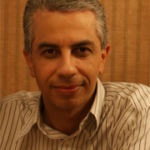 Masoud Ardakani (M’04-SM’09) received the B.Sc. degree from the Isfahan University of Technology in 1994, the M.Sc. degree from Tehran University in 1997, and the Ph.D. degree from the University of Toronto, Canada, in 2004, all in Electrical Engineering. He was a Postdoctoral fellow at the University of Toronto from 2004 to 2005. He is currently a Professor of Electrical and Computer Engineering at the University of Alberta, Canada. His research interests are in the general area of digital communications theory. Dr. Ardakani currently serves as the Area Editor (Information Theory and Coding) for the IEEE TRANSACTIONS ON COMMUNICATIONS and has served as an Editor-at-Large and an Associate Editor for this journal in the past. He has also served as an Associate Editor for the IEEE TRANSACTION ON WIRELESS COMMUNICATIONS and as an editor and senior editor for the IEEE COMMUNICATION LETTERS.
Masoud Ardakani (M’04-SM’09) received the B.Sc. degree from the Isfahan University of Technology in 1994, the M.Sc. degree from Tehran University in 1997, and the Ph.D. degree from the University of Toronto, Canada, in 2004, all in Electrical Engineering. He was a Postdoctoral fellow at the University of Toronto from 2004 to 2005. He is currently a Professor of Electrical and Computer Engineering at the University of Alberta, Canada. His research interests are in the general area of digital communications theory. Dr. Ardakani currently serves as the Area Editor (Information Theory and Coding) for the IEEE TRANSACTIONS ON COMMUNICATIONS and has served as an Editor-at-Large and an Associate Editor for this journal in the past. He has also served as an Associate Editor for the IEEE TRANSACTION ON WIRELESS COMMUNICATIONS and as an editor and senior editor for the IEEE COMMUNICATION LETTERS.
P5: 6G Network Architecture
Date: Wednesday 06 September
Time: 11:00 – 12:30
Location: Harbour B
Moderator: Xu Li, Huawei Technologies
Speakers:
Xu Li, Senior Principal Researcher, Huawei Technologies, Canada
Kumar Balachandran, Expert, Ericsson Research, USA
Hang Zhang, Technical VP, Huawei Technologies, Canada
Rongxing Lu (FIEEE), Professor, University of New Brunswick, Canada
Devaki Chandramouli, Bell Labs Fellow, Head of NAM Standards, Nokia, USA
Abstract:
With the advent of 6G, many aspects of our society will be changed. 6G technology will be combined with plenty of technologies in various fields to form an advanced driving force for the future.
1) AI. It is anticipated that AI will reshape many industries. AI can effectively improve network operation and O&M efficiency. More importantly, the 6G network will become an important execution environment for AI. How to natively support AI is a question to be answered in 6G network architecture design.
2) Data. Today, data has replaced oil as the world’s most valuable resource. The 6G network will be the largest confluence point of data. How to manage and make use of the data in a reasonable and compliant manner may become another question for 6G system development.
3) Capability integration. AI cannot work without data. When being offered by the network, they are further subject to connectivity provisioning in support of various applications. The heterogeneity, dynamicity and mobility of 6G network make the integration of these network capabilities a great challenge.
4) Multi-party collaboration. With the increasing cooperation of networks, users, campuses, and OTTs, it is necessary to study how multiple parties collaborate to resolve emerging issues in network operation, management and maintenance and to enable satisfactory service experience to service consumers.
5) Privacy, security and trust.
The 6G network is expected to address ever increasing security and privacy concerns and to enable enhanced trustworthiness among involved parties including terminals. Privacy, security and trust issues will not be missed when developing 6G networks.
All the above issues will profoundly impact the development path of the 6G network architecture. This panel provides an opportunity to discuss these issues and shed light on 6G network architecture design.
- What could the network native AI and data capabilities include, in addition to provisioning new communication KPIs?
- How to provision emerging services (e.g. AI, data) to 6G customers?
- Users, the network, and applications may need to tightly collaborate with each other. What role would the telecom operator play in the collaboration?
- How to enable trust, enhance security and provide privacy protection in 6G?
- How to make 6G cloud native?
Speaker Bios:
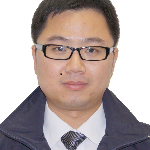 Xu Li is a senior principal researcher at Huawei Technologies Canada. He received a PhD degree in computer science from Carleton University, Canada in 2008. His current research interests are focused in design and development of next-generation wireless networks, computer networks, and especially in AI theory and applications in future networks. From 2016-2019, he actively participated in 3GPP 5G standardization and contributed extensively through 100+ standard proposals. He has published 100+ refereed scientific papers and is holding 80+ US patents. His work received nearly 10,000 citations and leads to an H-index of 54. He was on the editorial boards of IEEE Communications Magazine, the IEEE Transactions on Parallel and Distributed Systems, the Wiley Transactions on Emerging Telecommunications Technologies and a number of other international archive journals.
Xu Li is a senior principal researcher at Huawei Technologies Canada. He received a PhD degree in computer science from Carleton University, Canada in 2008. His current research interests are focused in design and development of next-generation wireless networks, computer networks, and especially in AI theory and applications in future networks. From 2016-2019, he actively participated in 3GPP 5G standardization and contributed extensively through 100+ standard proposals. He has published 100+ refereed scientific papers and is holding 80+ US patents. His work received nearly 10,000 citations and leads to an H-index of 54. He was on the editorial boards of IEEE Communications Magazine, the IEEE Transactions on Parallel and Distributed Systems, the Wiley Transactions on Emerging Telecommunications Technologies and a number of other international archive journals.
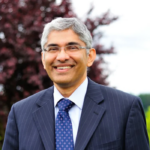 Kumar Balachandran is a Principal Researcher and has an appointment as Expert in Wireless Communications Networks with Ericsson Research, where he has worked since 1995. He has a BE (Hons) in Electronics and Communications Engineering from the Regional Engineering College, Tiruchirappalli, acquired in 1986 and holds an M.S. and PhD in Computer and Systems Engineering from Rensselaer Polytechnic Institute in Troy, NY, awarded in 1988 and 1992 respectively. Kumar has worked on problems pertaining to cellular phones and infrastructure for mobile communications spanning the Physical Layer, signal processing, radio resource management, spectrum sharing, protocol design, and systems engineering spanning all five generations of mobile cellular technologies. His efforts continue with research on 6G where he is currently working on research problems pertaining to radio resilience and system reliability. He is currently a delegate to the Next G Alliance and actively contributes to the 6G Roadmap, Spectrum Needs, and Technology Working Groups. He is active in working with Ericsson’s technology strategy and takes an interest in competitive analysis of mobile technology. He has served as a technical expert on the FCC’s Technological Advisory Council on spectrum topics (including his current focus on advanced spectrum sharing), receiver performance, and 5G&IoT. He has contributed to Ericsson’s outreach to the FCC and the NTIA on several occasions with technical arguments favoring the release of spectrum for use by the mobile industry. He has served as a panelist and invited speaker at several prominent conferences, is well published, has contributed to several books, and has been named on over 100 issued US patents as inventor.
Kumar Balachandran is a Principal Researcher and has an appointment as Expert in Wireless Communications Networks with Ericsson Research, where he has worked since 1995. He has a BE (Hons) in Electronics and Communications Engineering from the Regional Engineering College, Tiruchirappalli, acquired in 1986 and holds an M.S. and PhD in Computer and Systems Engineering from Rensselaer Polytechnic Institute in Troy, NY, awarded in 1988 and 1992 respectively. Kumar has worked on problems pertaining to cellular phones and infrastructure for mobile communications spanning the Physical Layer, signal processing, radio resource management, spectrum sharing, protocol design, and systems engineering spanning all five generations of mobile cellular technologies. His efforts continue with research on 6G where he is currently working on research problems pertaining to radio resilience and system reliability. He is currently a delegate to the Next G Alliance and actively contributes to the 6G Roadmap, Spectrum Needs, and Technology Working Groups. He is active in working with Ericsson’s technology strategy and takes an interest in competitive analysis of mobile technology. He has served as a technical expert on the FCC’s Technological Advisory Council on spectrum topics (including his current focus on advanced spectrum sharing), receiver performance, and 5G&IoT. He has contributed to Ericsson’s outreach to the FCC and the NTIA on several occasions with technical arguments favoring the release of spectrum for use by the mobile industry. He has served as a panelist and invited speaker at several prominent conferences, is well published, has contributed to several books, and has been named on over 100 issued US patents as inventor.
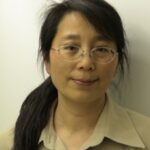 Hang Zhang holds Doctor Degree. She is a technical VP in Huawei Technologies, Canada. She has actively participated in wireless network research and 3GPP standardization activity in more than 30 years. She worked in Beijing University of Post and Telecommunications in Beijing, China, in NOKIA research center in Helsinki, Finland, Nortel research lab in Ottawa, Canada, and Huawei Technologies, in Canada. Her main research areas include wireless network architecture, data protocols, over-the-air interface and algorithms in wireless telecommunication. Her current focus is on future wireless network architecture design.
Hang Zhang holds Doctor Degree. She is a technical VP in Huawei Technologies, Canada. She has actively participated in wireless network research and 3GPP standardization activity in more than 30 years. She worked in Beijing University of Post and Telecommunications in Beijing, China, in NOKIA research center in Helsinki, Finland, Nortel research lab in Ottawa, Canada, and Huawei Technologies, in Canada. Her main research areas include wireless network architecture, data protocols, over-the-air interface and algorithms in wireless telecommunication. Her current focus is on future wireless network architecture design.
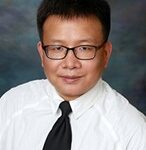 Rongxing Lu is a Mastercard IoT Research Chair, a University Research Scholar, a full professor at the Faculty of Computer Science (FCS), University of New Brunswick (UNB), Canada. Before that, he worked as an assistant professor at the School of Electrical and Electronic Engineering, Nanyang Technological University (NTU), Singapore from April 2013 to August 2016. Rongxing Lu worked as a Postdoctoral Fellow at the University of Waterloo from May 2012 to April 2013. He was awarded the most prestigious “Governor General’s Gold Medal”, when he received his PhD degree from the Department of Electrical & Computer Engineering, University of Waterloo, Canada, in 2012; and won the 8th IEEE Communications Society (ComSoc) Asia Pacific (AP) Outstanding Young Researcher Award, in 2013. Dr. Lu is an IEEE Fellow. His research interests include applied cryptography, privacy enhancing technologies, and IoT-Big Data security and privacy. He has published extensively in his areas of expertise. Currently, Dr. Lu serves as the Chair of IEEE ComSoc CIS-TC (Communications and Information Security Technical Committee), and the founding Co-chair of IEEE TEMS Blockchain and Distributed Ledgers Technologies Technical Committee (BDLT-TC). Dr. Lu is the Winner of 2016-17 Excellence in Teaching Award, FCS, UNB.
Rongxing Lu is a Mastercard IoT Research Chair, a University Research Scholar, a full professor at the Faculty of Computer Science (FCS), University of New Brunswick (UNB), Canada. Before that, he worked as an assistant professor at the School of Electrical and Electronic Engineering, Nanyang Technological University (NTU), Singapore from April 2013 to August 2016. Rongxing Lu worked as a Postdoctoral Fellow at the University of Waterloo from May 2012 to April 2013. He was awarded the most prestigious “Governor General’s Gold Medal”, when he received his PhD degree from the Department of Electrical & Computer Engineering, University of Waterloo, Canada, in 2012; and won the 8th IEEE Communications Society (ComSoc) Asia Pacific (AP) Outstanding Young Researcher Award, in 2013. Dr. Lu is an IEEE Fellow. His research interests include applied cryptography, privacy enhancing technologies, and IoT-Big Data security and privacy. He has published extensively in his areas of expertise. Currently, Dr. Lu serves as the Chair of IEEE ComSoc CIS-TC (Communications and Information Security Technical Committee), and the founding Co-chair of IEEE TEMS Blockchain and Distributed Ledgers Technologies Technical Committee (BDLT-TC). Dr. Lu is the Winner of 2016-17 Excellence in Teaching Award, FCS, UNB.
 Devaki Chandramouli is a Bell Labs Fellow and Head of North American Standardization at Nokia. She co-chairs the Next G Alliance Steering Group, currently working on 6G Architecture Research and pre-standardization aspects. She is also 3GPP SA2 delegate, leads the 5G System Architecture specification as rapporteur in 3GPP, and is the rapporteur for 3GPP work on Industrial 5G, Vertical_LAN (Rel-16), IIoT (Rel-17), and TRS_URLLC (Rel-18). A senior IEEE member, Devaki has authored articles on 5G and published/co-edited LTE for Public Safety (Wiley, 2015) and 5G for the Connected World (Wiley, 2019). She holds her B.E. degree from University of Madras, India, M.S. degree from The University of Texas at Arlington, and has over 200+ granted patents in wireless communications.
Devaki Chandramouli is a Bell Labs Fellow and Head of North American Standardization at Nokia. She co-chairs the Next G Alliance Steering Group, currently working on 6G Architecture Research and pre-standardization aspects. She is also 3GPP SA2 delegate, leads the 5G System Architecture specification as rapporteur in 3GPP, and is the rapporteur for 3GPP work on Industrial 5G, Vertical_LAN (Rel-16), IIoT (Rel-17), and TRS_URLLC (Rel-18). A senior IEEE member, Devaki has authored articles on 5G and published/co-edited LTE for Public Safety (Wiley, 2015) and 5G for the Connected World (Wiley, 2019). She holds her B.E. degree from University of Madras, India, M.S. degree from The University of Texas at Arlington, and has over 200+ granted patents in wireless communications.
P6: When 6G meets Robots – a Era of machine to machine GPT
Date: Friday 08 September
Time: 11:00 – 12:30
Location: Metropolitan West
Moderator: Farrokh Janabi-Sharifi, Toronto Metropolitan University
Moderator Bio:
 Farrokh Janabi-Sharifi is a Professor of Mechanical and Industrial Engineering and the Director of Robotics, Mechatronics and Automation Laboratory (RMAL) at Toronto Metropolitan University (TMU). Professor Janabi-Sharifi received the BSc and MASc degrees both in Mechanical Engineering from METU, Turkey, and the University of Toronto, Canada, respectively. He obtained a PhD degree in Electrical and Computer Engineering from the University of Waterloo, Canada in 1995. He was an NSERC postdoctoral fellow and instructor in the Center for Intelligent Machines and Department of Electrical and Computer Engineering of McGill University between 1995 and 1997. Later, he joined TMU’s Department of Mechanical and Industrial Engineering where he currently leads Mechatronics Engineering Program. He has also contributed significantly to the establishment of graduate programs at TMU including Mechanical Engineering and Biomedical Engineering Programs. His research interests span intelligent optomechatronic systems with the focus on image-guided control of robots, medical robots, and autonomous aerial systems. He has published significantly in the above areas with more than 250 peer reviewed journal and conference articles and a few books in his track record. He has been a visiting professor in KAIST (Daeijeon, Korea); IRISA-INRIA (Rennes, France); and Technical University of Munich (Munich, Germany). He has also been organizer and co-organizer of several international conferences on optomechatronic systems control. Dr. Janabi-Sharif has been a technical editor of several journals including International Journal of Optomechatronics and IEEE/ASME Transactions on Mechatronics. He is a fellow of the Canadian Society of Mechanical Engineers, Engineering Institute of Canada, and Canadian Academy of Engineering
Farrokh Janabi-Sharifi is a Professor of Mechanical and Industrial Engineering and the Director of Robotics, Mechatronics and Automation Laboratory (RMAL) at Toronto Metropolitan University (TMU). Professor Janabi-Sharifi received the BSc and MASc degrees both in Mechanical Engineering from METU, Turkey, and the University of Toronto, Canada, respectively. He obtained a PhD degree in Electrical and Computer Engineering from the University of Waterloo, Canada in 1995. He was an NSERC postdoctoral fellow and instructor in the Center for Intelligent Machines and Department of Electrical and Computer Engineering of McGill University between 1995 and 1997. Later, he joined TMU’s Department of Mechanical and Industrial Engineering where he currently leads Mechatronics Engineering Program. He has also contributed significantly to the establishment of graduate programs at TMU including Mechanical Engineering and Biomedical Engineering Programs. His research interests span intelligent optomechatronic systems with the focus on image-guided control of robots, medical robots, and autonomous aerial systems. He has published significantly in the above areas with more than 250 peer reviewed journal and conference articles and a few books in his track record. He has been a visiting professor in KAIST (Daeijeon, Korea); IRISA-INRIA (Rennes, France); and Technical University of Munich (Munich, Germany). He has also been organizer and co-organizer of several international conferences on optomechatronic systems control. Dr. Janabi-Sharif has been a technical editor of several journals including International Journal of Optomechatronics and IEEE/ASME Transactions on Mechatronics. He is a fellow of the Canadian Society of Mechanical Engineers, Engineering Institute of Canada, and Canadian Academy of Engineering
Speakers:
James Harvey Elder, York University
Hugh H.T. Liu, University of Toronto, Canada
Yiqun Ge, Distinguished Engineer, Huawei Technologies, Canada
Prof. Slawomir Stanczak, Fraunhofer HHI, Germany
Abstract:
Robotic applications are envisioned to penetrate diversified application areas and societal sectors. Integrating next generation mobile communication capability into robotics systems are gaining significant momentum. In particular, the 6G network with integrated sensing, AI, and communication functions are to serve as a distributed neural platform to enable general purpose robots with m2mGPT intelligence. How this trend would impact both industries?
Speaker Bios:
 James Elder is Professor and York Research Chair in Human and Computer Vision, Department of Electrical Engineering & Computer Science (Lassonde School of Engineering), Department of Psychology (Faculty of Health) and Co-Director of the Centre for AI & Society at York University. Dr. Elder’s research seeks to improve machine vision systems through a better understanding of visual processing in biological systems. He has published more than 100 papers in biological and computer vision journals and conferences. Dr. Elder’s current research is focused on natural scene statistics, perceptual organization, contour processing, shape perception, single-view 3D reconstruction, attentive vision systems, and socially-aware robotics. He holds a number of patents on attentive vision technologies and is the co-founder of the AI start-up AttentiveVision. He is appointed to the Editorial Boards of two international journals.
James Elder is Professor and York Research Chair in Human and Computer Vision, Department of Electrical Engineering & Computer Science (Lassonde School of Engineering), Department of Psychology (Faculty of Health) and Co-Director of the Centre for AI & Society at York University. Dr. Elder’s research seeks to improve machine vision systems through a better understanding of visual processing in biological systems. He has published more than 100 papers in biological and computer vision journals and conferences. Dr. Elder’s current research is focused on natural scene statistics, perceptual organization, contour processing, shape perception, single-view 3D reconstruction, attentive vision systems, and socially-aware robotics. He holds a number of patents on attentive vision technologies and is the co-founder of the AI start-up AttentiveVision. He is appointed to the Editorial Boards of two international journals.
 Hugh H.T. Liu is a Professor of the University of Toronto Institute for Aerospace Studies, where he has been on the faculty since 2000. He currently also serves as the Director of Natural Science and Engineering Research Council of Canada (NSERC) Collaborative Research and Training Experience (CREATE) Program on Unmanned Aerial Vehicles and Centre for Aerial Robotics Research and Education. In 2022, he was named as the fellow of Canadian Academy of Engineering. The Canadian Aeronautics and Space Institute (CASI) Senior Awards recognizes Canadians for their outstanding achievement in aeronautics, space and related technologies. For the 2021 Senior Awards, Professor Hugh H.T. Liu was awarded the CASI McCurdy Award, presented for his outstanding achievement in the science and creative aspects of engineering relating to aeronautics and space research.
Hugh H.T. Liu is a Professor of the University of Toronto Institute for Aerospace Studies, where he has been on the faculty since 2000. He currently also serves as the Director of Natural Science and Engineering Research Council of Canada (NSERC) Collaborative Research and Training Experience (CREATE) Program on Unmanned Aerial Vehicles and Centre for Aerial Robotics Research and Education. In 2022, he was named as the fellow of Canadian Academy of Engineering. The Canadian Aeronautics and Space Institute (CASI) Senior Awards recognizes Canadians for their outstanding achievement in aeronautics, space and related technologies. For the 2021 Senior Awards, Professor Hugh H.T. Liu was awarded the CASI McCurdy Award, presented for his outstanding achievement in the science and creative aspects of engineering relating to aeronautics and space research.
He received his Bachelor’s degree from Shanghai Jiao Tong University (1991), Master’s degree from Beijing University of Aeronautics and Astronautics (1994), and Ph.D. from the University of Toronto (1998). His research interests in the area of aircraft systems and control include autonomous unmanned systems, cooperative and formation control, fault tolerant control, active control on advanced aircraft systems, as well as integrated modeling and simulations. He currently serves as the Associate Editor of AIAA Journal of Guidance, Control and Dynamics. He is also an Associate Editor of the Canadian Aeronautics and Space Journal. Dr. Liu is a fellow of Engineering Institute of Canada, an Associate Fellow of AIAA, a Fellow of Canadian Society of Mechanical Engineers, and a registered Professional Engineer in Ontario, Canada.
 Mr Yiqun Ge obtained bachelor degree from Shanghai Jiaotong University in 2000 and master degree from ENST-Bretagne in 2003. From 2003 to 2008, he worked as research engineer with STMicroelectronics in Switzerland, France, and China. From 2008 to 2011, he joined Octasic Inc. in Canada. From 2011 up now, he has been working with Huawei Canada at Ottawa. He worked a multitude of projects across several domains such as chip architecture, chip design, system design, channel code, machine learning, semantic communication, MIMO, and most recently AI and robotics. Now, he is distinguished engineer and research scientist with Huawei Canada, wireless competence center. His and his team’s research focuses on the fundamental theory study for future wireless system, which includes AI, channel code, T-MIMO, semantic/effectiveness communication, and robotics.
Mr Yiqun Ge obtained bachelor degree from Shanghai Jiaotong University in 2000 and master degree from ENST-Bretagne in 2003. From 2003 to 2008, he worked as research engineer with STMicroelectronics in Switzerland, France, and China. From 2008 to 2011, he joined Octasic Inc. in Canada. From 2011 up now, he has been working with Huawei Canada at Ottawa. He worked a multitude of projects across several domains such as chip architecture, chip design, system design, channel code, machine learning, semantic communication, MIMO, and most recently AI and robotics. Now, he is distinguished engineer and research scientist with Huawei Canada, wireless competence center. His and his team’s research focuses on the fundamental theory study for future wireless system, which includes AI, channel code, T-MIMO, semantic/effectiveness communication, and robotics.
 Slawomir Stanczak is Professor of Network Information Theory at the Technical University of Berlin and Head of the Wireless Communications and Networks Department at the Fraunhofer Heinrich Hertz Institute (HHI). Prof. Stanczak is co-author of two books and more than 200 peer-reviewed journal articles and conference papers in the field of information theory, wireless communications, signal processing, and machine learning. Prof. Stanczak received research grants from the German Research Foundation and the Best Paper Award from the German Society for Telecommunications in 2014. He was an associate editor of the IEEE Transactions on Signal Processing from 2012 to 2015 and chair of the ITU-T Focus Group on Machine Learning for Future Networks including 5G from 2017 to 2020. Since 2020 Prof. Stanczak is chairman of the 5G Berlin association and since 2021 he is coordinator of the projects 6G-RIC (Research & Innovation Cluster) and CampusOS.
Slawomir Stanczak is Professor of Network Information Theory at the Technical University of Berlin and Head of the Wireless Communications and Networks Department at the Fraunhofer Heinrich Hertz Institute (HHI). Prof. Stanczak is co-author of two books and more than 200 peer-reviewed journal articles and conference papers in the field of information theory, wireless communications, signal processing, and machine learning. Prof. Stanczak received research grants from the German Research Foundation and the Best Paper Award from the German Society for Telecommunications in 2014. He was an associate editor of the IEEE Transactions on Signal Processing from 2012 to 2015 and chair of the ITU-T Focus Group on Machine Learning for Future Networks including 5G from 2017 to 2020. Since 2020 Prof. Stanczak is chairman of the 5G Berlin association and since 2021 he is coordinator of the projects 6G-RIC (Research & Innovation Cluster) and CampusOS.
P7: Latest Technologies and Standards of Wireless Body Area Network (BAN)
Date: Friday 08 September
Time: 14:00 – 15:30
Location: Metropolitan West
Moderator: Ryuji Kohno, Yokohama National University and YRP International Alliance Institute
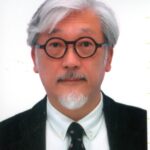 Ryuji Kohno received the Ph.D. degree from the University of Tokyo in 1984. He was a Professor and the Director of Centre on Medical Information and Communication Technology, in Yokohama National University in Japan for 1998-2021 and then Professor Emeritus. In his currier he played a part-time role of a director of Advanced Telecommunications Laboratory of SONY CSL during 1998-2002, directors of UWB Technology and medical ICT institutes of the National Institute of Information and Communication Technologies (NICT) during 2002-2012. For 2012-2020 he was CEO of University of Oulu Research Institute Japan – CWC-Nippon Co. and since 2020 Vice-President of YRP International Alliance Institute. The meanwhile for 2007-2020 a distinguished professor in University of Oulu in Finland and since 2006 an associate member of the Science Council of Japan(SCJ). In IEEE he was a member of the Board of Governors of Information Theory Society in 2000-2009, and editors of Transactions on Communications, Information Theory, ITS, IEEE802.15 standardization TG6ma Chair and IEEE Life Fellow. In IEICE he was Vice-president of Engineering Sciences Society of IEICE during 2004-2005, Editor-in chief of the IEICE Trans. Fundamentals during 2003-2005 and IEICE Fellow. He is a founder and a chair of steering committees of international symposia of medical information and communication technologies (ISMICT) since 2006, general and TPC chairs in many international conferences such as PIMRC99, SDR02, ISIT03, UWBST04, ISMICT06&15 etc.
Ryuji Kohno received the Ph.D. degree from the University of Tokyo in 1984. He was a Professor and the Director of Centre on Medical Information and Communication Technology, in Yokohama National University in Japan for 1998-2021 and then Professor Emeritus. In his currier he played a part-time role of a director of Advanced Telecommunications Laboratory of SONY CSL during 1998-2002, directors of UWB Technology and medical ICT institutes of the National Institute of Information and Communication Technologies (NICT) during 2002-2012. For 2012-2020 he was CEO of University of Oulu Research Institute Japan – CWC-Nippon Co. and since 2020 Vice-President of YRP International Alliance Institute. The meanwhile for 2007-2020 a distinguished professor in University of Oulu in Finland and since 2006 an associate member of the Science Council of Japan(SCJ). In IEEE he was a member of the Board of Governors of Information Theory Society in 2000-2009, and editors of Transactions on Communications, Information Theory, ITS, IEEE802.15 standardization TG6ma Chair and IEEE Life Fellow. In IEICE he was Vice-president of Engineering Sciences Society of IEICE during 2004-2005, Editor-in chief of the IEICE Trans. Fundamentals during 2003-2005 and IEICE Fellow. He is a founder and a chair of steering committees of international symposia of medical information and communication technologies (ISMICT) since 2006, general and TPC chairs in many international conferences such as PIMRC99, SDR02, ISIT03, UWBST04, ISMICT06&15 etc.
Speakers:
- Prof. Lorenzo Mucchi (University of Florence)
- Prof. Matti Hämäläinen (University of Oulu)
- Prof. Daisuke Anzai (Nagoya Institute of Technology)
- Prof. Elvino S. Sousa (University of Toronto)
Abstract: Wireless Body Area Network (BAN) has been researched and developed for digital medicine and its standard like IEEE802.15.6 and ESTI Smart BAN are now on amendment and revision.
In particular, the revision IEEE802.15.6ma has been focusing on enhanced dependability of wireless BAN and extended to automotive use cases for autonomous driving and remote maintenance of vehicle body as well as highly dependable Brain-Machine-Interface (BMI) for human wearable and implant medical healthcare devices.
For the revision with enhanced dependability various physical and MAC layers of technologies have been proposed and applied for the new standard. For instance, cognitive channel coding corresponding to required QoS levels of packets and coexistence environment with same BANs and other radios. Hybrid MAC of contention access and free protocols corresponding to QoS levels and coexistence environments etc.
A new market of such a dependable BAN for human and vehicle bodies has been expanding and covering a new service for driving assistance such as human errors in driving with vehicle BAN and AI for elderly drivers etc. It makes a new paradigm of automotive and medical healthcare industries. Device benders of Ultra-Wide Band (UWB) may have more motivation to develop a new device of ranging and communication.
ETSI Smart BAN has been focusing on smarter implementation for human BAN for medical healthcare devices with standard of data container format etc. It may have common specification with ETSI Smart M2M.
The panel can introduce latest progress of the BAN standards and required technologies and possible innovation in Beyond 5G or 6G with BAN to accomplish some of SDGs by active representatives of academia, industry, and government.
- Necessary technologies of physical, MAC, network, and application layers in wireless BAN
- New and major applications and markets of wireless BAN
- Latest progress and trends of wireless BAN standards
- BAN platform with 5G/6G clouds and AI data science for medical, automotive, and other industries
- Necessary regulatory update
- Education for experts with balanced intelligence in medical, automotive, and other fields
Speaker Bios:
 Prof .Lorenzo Mucchi was born in Rome, Italy, in 1971. He received the Dr.Eng. Degree (Laurea) in Telecommunications Engineering from the University of Florence (Italy) in 1998 and the Ph.D. in Telecommunications and Information Society in 2001. Since 2001 he has been with the Department of Electronics and Telecommunications of the University of Florence as a Research Scientist. His main research areas include theoretical modelling, algorithm design and real measurements, mainly focused on the following fields: physical-layer security and light cryptography, visible light communications, spread spectrum techniques (UWB), localization, body area networks, biometric encryption, molecular communications, diversity techniques and interference management. He is involved in several national and international projects. Dr. Mucchi is a senior member (2012) of the Institute of Electrical and Electronics Engineers (IEEE), member (2009) of the IEEE Communications and Information Security Technical Committee (CISTC) and permanent member (2000) of the International Association of Science and Technology for Development (IASTED) Technical Committee on Telecommunications. Dr. Mucchi is a member of the European Telecommunications Standard Institute (ETSI) Smart Body Area Network (SmartBAN) group (2013) and team leader of the special task force 511 (2016) SmartBAN Performance and Coexistence Verification.
Prof .Lorenzo Mucchi was born in Rome, Italy, in 1971. He received the Dr.Eng. Degree (Laurea) in Telecommunications Engineering from the University of Florence (Italy) in 1998 and the Ph.D. in Telecommunications and Information Society in 2001. Since 2001 he has been with the Department of Electronics and Telecommunications of the University of Florence as a Research Scientist. His main research areas include theoretical modelling, algorithm design and real measurements, mainly focused on the following fields: physical-layer security and light cryptography, visible light communications, spread spectrum techniques (UWB), localization, body area networks, biometric encryption, molecular communications, diversity techniques and interference management. He is involved in several national and international projects. Dr. Mucchi is a senior member (2012) of the Institute of Electrical and Electronics Engineers (IEEE), member (2009) of the IEEE Communications and Information Security Technical Committee (CISTC) and permanent member (2000) of the International Association of Science and Technology for Development (IASTED) Technical Committee on Telecommunications. Dr. Mucchi is a member of the European Telecommunications Standard Institute (ETSI) Smart Body Area Network (SmartBAN) group (2013) and team leader of the special task force 511 (2016) SmartBAN Performance and Coexistence Verification.
 Matti Hämäläinen received his M.Sc.,Lic.Tech., and Dr.Sc. degrees in 1994, 2002 and 2006, respectively, all from the Univ. of Oulu, Finland. He has more than 150 international scientific publications. He is co-author of “Wireless UWB Body Area Networks: Using the IEEE802.15.4-2011”. Currently, he is an adjunct professor of CWC, Univ. of Oulu. He was a Guest Professor of Institute of Advanced Science in YNU. He was a general Co-Chair of BodyNets2018 and is a senior member of IEEE.
Matti Hämäläinen received his M.Sc.,Lic.Tech., and Dr.Sc. degrees in 1994, 2002 and 2006, respectively, all from the Univ. of Oulu, Finland. He has more than 150 international scientific publications. He is co-author of “Wireless UWB Body Area Networks: Using the IEEE802.15.4-2011”. Currently, he is an adjunct professor of CWC, Univ. of Oulu. He was a Guest Professor of Institute of Advanced Science in YNU. He was a general Co-Chair of BodyNets2018 and is a senior member of IEEE.
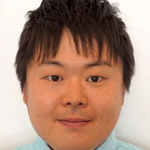 Dr. Daisuke Anzai (Senior Member, IEEE) received the B.E., M.E., and Ph.D. degrees from Osaka City University, Osaka, Japan, in 2006, 2008, and 2011, respectively. Since 2011, he has been with the Graduate School of Engineering, Nagoya Institute of Technology, Nagoya, Japan, where he is currently an Associate Professor. His research interests include biomedical communication systems and localization systems in wireless communication networks. Dr. Anzai was the recipient of the 2015 IEEE MTT-S Japan Young Engineer Award and the Telecommunications Technology Award from the Telecommunications Advancement Foundation.
Dr. Daisuke Anzai (Senior Member, IEEE) received the B.E., M.E., and Ph.D. degrees from Osaka City University, Osaka, Japan, in 2006, 2008, and 2011, respectively. Since 2011, he has been with the Graduate School of Engineering, Nagoya Institute of Technology, Nagoya, Japan, where he is currently an Associate Professor. His research interests include biomedical communication systems and localization systems in wireless communication networks. Dr. Anzai was the recipient of the 2015 IEEE MTT-S Japan Young Engineer Award and the Telecommunications Technology Award from the Telecommunications Advancement Foundation.
 Elvino S. Sousa (Fellow, IEEE) received the B.A.Sc. degree in engineering science and the M.A.Sc. degree in electrical engineering from the University of Toronto, in 1980 and 1982, respectively, and the Ph.D. degree in electrical engineering from the University of Southern California, in 1985. He pioneered the area of wireless communications with the University of Toronto, where he is currently the Director of the Wireless Laboratory, which has undertaken research on wireless systems for the past 28 years. Since 1986, he has been with the Department of Electrical and Computer Engineering, University of Toronto, where he is also a Professor and the Jeffrey Skoll Professor of computer network architecture. He has also been invited to give numerous lectures and short courses on spread spectrum, code division multiple access, and wireless systems in many countries. He has also been a consultant to the industry and Governments internationally in the area of wireless systems. He has also been involved in various standardization and industry related wireless activities and is actively participating in NGMN as an Advisor. He is also the inventor of the autonomous infrastructure wireless network concept. His current interests are in the areas of autonomous infrastructure wireless networks, cognitive radio, self-configurable wireless networks, and two-tier networks. He was the Technical Program Chair of PIMRC’95, the Vice Technical Program Chair of Globecom’99, and the Co-Technical Program Chair of WPMC’10 and PIMRC’11. He has been involved in the technical program committee of numerous international conferences. He was the Chair of the IEEE Technical Committee on Personal Communications. He has spent sabbatical leaves with Qualcomm and Sony CSL/ATL. He received the Queen Elizabeth II Golden Jubilee Medal.
Elvino S. Sousa (Fellow, IEEE) received the B.A.Sc. degree in engineering science and the M.A.Sc. degree in electrical engineering from the University of Toronto, in 1980 and 1982, respectively, and the Ph.D. degree in electrical engineering from the University of Southern California, in 1985. He pioneered the area of wireless communications with the University of Toronto, where he is currently the Director of the Wireless Laboratory, which has undertaken research on wireless systems for the past 28 years. Since 1986, he has been with the Department of Electrical and Computer Engineering, University of Toronto, where he is also a Professor and the Jeffrey Skoll Professor of computer network architecture. He has also been invited to give numerous lectures and short courses on spread spectrum, code division multiple access, and wireless systems in many countries. He has also been a consultant to the industry and Governments internationally in the area of wireless systems. He has also been involved in various standardization and industry related wireless activities and is actively participating in NGMN as an Advisor. He is also the inventor of the autonomous infrastructure wireless network concept. His current interests are in the areas of autonomous infrastructure wireless networks, cognitive radio, self-configurable wireless networks, and two-tier networks. He was the Technical Program Chair of PIMRC’95, the Vice Technical Program Chair of Globecom’99, and the Co-Technical Program Chair of WPMC’10 and PIMRC’11. He has been involved in the technical program committee of numerous international conferences. He was the Chair of the IEEE Technical Committee on Personal Communications. He has spent sabbatical leaves with Qualcomm and Sony CSL/ATL. He received the Queen Elizabeth II Golden Jubilee Medal.
P8: Unlocking the Potential of 6G: Shaping the Next Generation of Connectivity
Date: Thursday 07 September
Time: 16:00 – 17:30
Location: Metropolitan West
Moderator: Kuljeet Kaur, École de technologie supérieure
Moderator Bio:
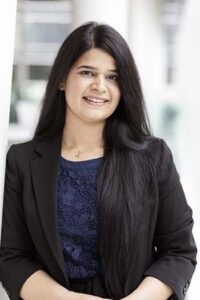 Dr. Kuljeet Kaur works as an Associate Professor at École de technologie supérieure (ÉTS), Montreal since 2020. Her research interests are cybersecurity, Cloud/Edge Computing, the Internet of Things (IoT), applied machine learning and artificial intelligence, Communications, and Smart Grids. She published over 75 scientific/technical articles and 2 books. She has secured research funding from various sources such as the Natural Sciences and Engineering Research Council of Canada (NSERC), Fonds de Recherche du Québec Nature et technologies (FRQNT), Department of Science and Technology (DST), and TCS Innovations Labs. Dr. Kaur is the recipient of the 2023 N2Women Rising Stars in Networking and Communications and the 2021 IEEE Technical Committee on Scalable Computing (TCSC) Award for Excellence in Scalable Computing for Early Career Researchers. She was also awarded the 2021 IEEE System Journal and 2018 IEEE ICC best paper awards. She also received the Best Research Paper Awards from the Thapar Institute of Engineering & Technology in 2022 and 2019.
Dr. Kuljeet Kaur works as an Associate Professor at École de technologie supérieure (ÉTS), Montreal since 2020. Her research interests are cybersecurity, Cloud/Edge Computing, the Internet of Things (IoT), applied machine learning and artificial intelligence, Communications, and Smart Grids. She published over 75 scientific/technical articles and 2 books. She has secured research funding from various sources such as the Natural Sciences and Engineering Research Council of Canada (NSERC), Fonds de Recherche du Québec Nature et technologies (FRQNT), Department of Science and Technology (DST), and TCS Innovations Labs. Dr. Kaur is the recipient of the 2023 N2Women Rising Stars in Networking and Communications and the 2021 IEEE Technical Committee on Scalable Computing (TCSC) Award for Excellence in Scalable Computing for Early Career Researchers. She was also awarded the 2021 IEEE System Journal and 2018 IEEE ICC best paper awards. She also received the Best Research Paper Awards from the Thapar Institute of Engineering & Technology in 2022 and 2019.
She has been serving as an Editor/Guest Editor for various international journals of repute, such as IEEE Transactions of Industrial Informatics, Wiley Security and Privacy Journal, Journal of Information Processing Systems, Springer Human‑centric Computing and Information Sciences, and Frontiers in Communications and Networking. She has been organizing international symposium and workshops for several flagship conferences such as IEEE GLOBECOM, IEEE INFOCOM, IEEE ICC, ACM MOBICOM and others. She served as a technical program committee (TPC) member for several international conferences, including IEEE GLOBECOM and IEEE ICC.
She serves as the Faculty Representative for the IEEE ÉTS student branch and Deputy Secretary for the IEEE ComSoc Women in Communications Engineering (WICE). She served as the Vice‑Chair (2020‑22) of the IEEE Montreal Young Professionals Affinity Group and the Website co‑chair (2020‑22) for the Networking Networking Women (N2Women), a discipline‑specific community for female researchers.
Speakers:
Lian Zhao, Toronto Metropolitan University, Canada
Jianglei Ma, Huawei Technologies, Canada
Gunes Karabulut Kurt, Ecole Polytechnique Montreal, Canada
Toktam Mahmoodi, King’s College London, UK
Baek-Young Choi, University of Missouri, Kansas City, UMKC
Abstract: In the ever-evolving landscape of telecommunications, the transition from 4G to 5G represented a quantum leap in connectivity, enabling innovations that touched every aspect of our lives. Now, on the horizon, we glimpse the next frontier – 6G technology. Beyond merely promising faster speeds and lower latency, 6G holds the potential to redefine the very fabric of our connected world. This panel discussion, ” Unlocking the Potential of 6G: Shaping the Next Generation of Connectivity,” invites experts and thought leaders from various domains to delve deep into the possibilities and challenges presented by the imminent arrival of 6G. We will explore its defining features, its potential to reshape industries, and the critical role it plays in our global digital future.
Speaker Bios:
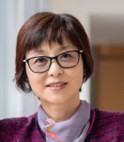 Lian Zhao received the Ph.D. degree from the Department of Electrical and Computer Engineering (ELCE), University of Waterloo, Canada, in 2002. She joined the Department of Electrical and Computer Engineering at Toronto Metropolitan University (formerly Ryerson University), Canada, in 2003. Her research interests are in the areas of wireless communications, resource management, mobile edge computing, caching and communications, and IoV networks.
Lian Zhao received the Ph.D. degree from the Department of Electrical and Computer Engineering (ELCE), University of Waterloo, Canada, in 2002. She joined the Department of Electrical and Computer Engineering at Toronto Metropolitan University (formerly Ryerson University), Canada, in 2003. Her research interests are in the areas of wireless communications, resource management, mobile edge computing, caching and communications, and IoV networks.
She has been an IEEE Communication Society (ComSoc) and IEEE Vehicular Technology (VTS) Distinguished Lecturer (DL); received the Best Land Transportation Paper Award from IEEE Vehicular Technology Society in 2016, Top 15 Editor Award in 2016 for IEEE Transaction on Vehicular Technology, Best Paper Award from the 2013 International Conference on Wireless Communications and Signal Processing (WCSP), and the Canada Foundation for Innovation (CFI) New Opportunity Research Award in 2005.
She has been serving as an Editor for IEEE Transactions on Wireless Communications, IEEE Internet of Things Journal, and IEEE Transactions on Vehicular Technology (2013-2021). She served as a co-Chair of Wireless Communication Symposium for IEEE Globecom 2020 and IEEE ICC 2018; Finance co-Chair for 2021 ICASSP; Local Arrangement co-Chair for IEEE VTC Fall 2017 and IEEE Infocom 2014; co-Chair of Communication Theory Symposium for IEEE Globecom 2013. She has been an elected member for the Board of Governor (BoG) of VTS since 2023. She has severed as a panel expert in various federal, provincial, and international evaluation committees.
 Jianglei Ma is a Technical VP based at Huawei Ottawa R&D Center. Her research area is advanced wireless access technologies. She has been actively contributed to 3GPP standards since LTE. She led NR air interface research and is currently leading 6G air interface research in Huawei. Prior to joining Huawei in 2009, she was in charge of LTE air interface research in Wireless Technology Lab at Nortel. Jianglei Ma was a visiting Associate Professor of Dept. of Electrical and Computer Engineering at the University of Illinois at Urbana-Champaign and a Professor of National Laboratory of Millimeter Waves & Dept. of Electronic Engineering in Southeast University.
Jianglei Ma is a Technical VP based at Huawei Ottawa R&D Center. Her research area is advanced wireless access technologies. She has been actively contributed to 3GPP standards since LTE. She led NR air interface research and is currently leading 6G air interface research in Huawei. Prior to joining Huawei in 2009, she was in charge of LTE air interface research in Wireless Technology Lab at Nortel. Jianglei Ma was a visiting Associate Professor of Dept. of Electrical and Computer Engineering at the University of Illinois at Urbana-Champaign and a Professor of National Laboratory of Millimeter Waves & Dept. of Electronic Engineering in Southeast University.
 Gunes Karabulut Kurt received the B.S. degree with high honors in electronics and electrical engineering from Bogazici University, Istanbul, Turkey, in 2000 and the M.A.Sc. and the Ph.D. degrees in electrical engineering from the University of Ottawa, ON, Canada, in 2002 and 2006, respectively. From 2000 to 2005, she was a Research Assistant with the CASP Group, University of Ottawa. Between 2005 and 2006, she was with TenXc Wireless, Canada. From 2006 to 2008, Dr. Karabulut Kurt was with Edgewater Computer Systems Inc., Canada. From 2008 to 2010, she was with Turkcell Research and Development Applied Research and Technology, Istanbul. Between 2010 and 2021, she was with Istanbul Technical University. She is currently an Associate Professor of Electrical Engineering at Polytechnique Montréal, Montréal, QC, Canada. She is a Marie Curie Fellow and has received the Turkish Academy of Sciences Outstanding Young Scientist (TÜBA-GEBIP) Award in 2019. In addition, she is an adjunct research professor at Carleton University. She is currently serving as an associate technical editor of the IEEE Communications Magazine, an associate editor of IEEE Communication Letters, an associate editor of IEEE Wireless Communications Letters, and an area editor of IEEE Transactions on Machine Learning in Communications and Networking. She is a member of the IEEE WCNC Steering Board. She is serving as the secretary of IEEE Satellite and Space Communications Technical Committee and also the chair of the IEEE special interest group entitled “Satellite Mega-constellations: Communications and Networking”. She is a Distinguished Lecturer of Vehicular Technology Society Class of 2022.
Gunes Karabulut Kurt received the B.S. degree with high honors in electronics and electrical engineering from Bogazici University, Istanbul, Turkey, in 2000 and the M.A.Sc. and the Ph.D. degrees in electrical engineering from the University of Ottawa, ON, Canada, in 2002 and 2006, respectively. From 2000 to 2005, she was a Research Assistant with the CASP Group, University of Ottawa. Between 2005 and 2006, she was with TenXc Wireless, Canada. From 2006 to 2008, Dr. Karabulut Kurt was with Edgewater Computer Systems Inc., Canada. From 2008 to 2010, she was with Turkcell Research and Development Applied Research and Technology, Istanbul. Between 2010 and 2021, she was with Istanbul Technical University. She is currently an Associate Professor of Electrical Engineering at Polytechnique Montréal, Montréal, QC, Canada. She is a Marie Curie Fellow and has received the Turkish Academy of Sciences Outstanding Young Scientist (TÜBA-GEBIP) Award in 2019. In addition, she is an adjunct research professor at Carleton University. She is currently serving as an associate technical editor of the IEEE Communications Magazine, an associate editor of IEEE Communication Letters, an associate editor of IEEE Wireless Communications Letters, and an area editor of IEEE Transactions on Machine Learning in Communications and Networking. She is a member of the IEEE WCNC Steering Board. She is serving as the secretary of IEEE Satellite and Space Communications Technical Committee and also the chair of the IEEE special interest group entitled “Satellite Mega-constellations: Communications and Networking”. She is a Distinguished Lecturer of Vehicular Technology Society Class of 2022.
 Toktam Mahmoodi [S’06, M’09, SM’16] is a Professor of Communication Engineering and Director of the Centre for Telecommunications Research (CTR) in King’s College London. Previously, she was visiting research scientist at F5 Networks, research associate in Imperial College London, Mobile VCE researcher, and telecom R&D engineer. Toktam is and has been involved in number of European FP7 and H2020 projects on 5G mobile networks, vehicular communications, and Software-defined Networking. Her research focuses on the areas of mobile and cloud networking, and includes ultra-low latency networking, network virtualization, mobility management, network modelling and optimization. She has contributed to the ETSI, IETF and 3GPP standards, and has played an active role within 5GPPP in defining 5G vision for vertical industries. She has also served on number of editorial boards, and the roles include the executive editor of Transactions on Emerging Telecommunications Technologies, series guest editor of JSAC series on network softwarization, area editor of IEEE Communications Standard Magazine on management & orchestration, and editor of IEEE communication letters. Toktam served as general chair of ICT 2021, and has been technical committee chair and member of various IEEE ComSoc conferences.
Toktam Mahmoodi [S’06, M’09, SM’16] is a Professor of Communication Engineering and Director of the Centre for Telecommunications Research (CTR) in King’s College London. Previously, she was visiting research scientist at F5 Networks, research associate in Imperial College London, Mobile VCE researcher, and telecom R&D engineer. Toktam is and has been involved in number of European FP7 and H2020 projects on 5G mobile networks, vehicular communications, and Software-defined Networking. Her research focuses on the areas of mobile and cloud networking, and includes ultra-low latency networking, network virtualization, mobility management, network modelling and optimization. She has contributed to the ETSI, IETF and 3GPP standards, and has played an active role within 5GPPP in defining 5G vision for vertical industries. She has also served on number of editorial boards, and the roles include the executive editor of Transactions on Emerging Telecommunications Technologies, series guest editor of JSAC series on network softwarization, area editor of IEEE Communications Standard Magazine on management & orchestration, and editor of IEEE communication letters. Toktam served as general chair of ICT 2021, and has been technical committee chair and member of various IEEE ComSoc conferences.
 Dr. Baek-Young Choi is a Professor at the University of Missouri – Kansas City (UMKC). She received her Ph.D. degree in Computer Science and Engineering from the University of Minnesota, Twin Cities. She published three books on network monitoring, storage systems, and cloud computing. She has been a faculty fellow of the National Aeronautics and Space Administration (NASA), U.S. Air Force Research Laboratory’s Visiting Faculty Research Program (AFRL-VFRP) and Korea Telecom’s – Advance Institute of Technology (KT-AIT). She is an associate editor for IEEE Consumer ElectronicsMagazine and was an associate editor for IEEE Internet-of-Things Journal, Springer Journal of Telecommunication Systems, Elsevier Journal Computer Networks. Her research interests generally lie in the broad area of networking and communications, with specific emphasis on Internet-of-Things, software-defined networking, cybersecurity, smart city technologies. She is a senior member of ACM and IEEE, and a chair of IEEE Women in Communications Engineering (WICE).
Dr. Baek-Young Choi is a Professor at the University of Missouri – Kansas City (UMKC). She received her Ph.D. degree in Computer Science and Engineering from the University of Minnesota, Twin Cities. She published three books on network monitoring, storage systems, and cloud computing. She has been a faculty fellow of the National Aeronautics and Space Administration (NASA), U.S. Air Force Research Laboratory’s Visiting Faculty Research Program (AFRL-VFRP) and Korea Telecom’s – Advance Institute of Technology (KT-AIT). She is an associate editor for IEEE Consumer ElectronicsMagazine and was an associate editor for IEEE Internet-of-Things Journal, Springer Journal of Telecommunication Systems, Elsevier Journal Computer Networks. Her research interests generally lie in the broad area of networking and communications, with specific emphasis on Internet-of-Things, software-defined networking, cybersecurity, smart city technologies. She is a senior member of ACM and IEEE, and a chair of IEEE Women in Communications Engineering (WICE).
P9: Young Professional (YP)
Date: Thursday 07 September
Time: 16:00 – 17:30
Location: Metropolitan Centre
Moderator: Nima Javanbakht, Senior RF Systems Engineer at Sanmina, Chair of IEEE Young Professionals Ottawa
Topic #1: Life after graduation
Time: 16:00 – 16:45
Speakers:
Amirbahador Mansoori, R&D Engineer at SynMatrix Technologies Inc.
Dr. Intikhab Hussain, Senior Systems Engineer at Peraso Technologies.
Dr. Parinaz Naseri, Senior Hardware Design Engineer at Novamera Inc.
Famararz Dorani, Software Engineer at Meta.
Heidi Bathory, Space Systems Design Engineer at MDA.
Raghav Thanigaivel, Senior Engineer at Telus, Chair of IEEE Young Professionals Canada
Speaker Bios:
 Amirbahador Mansoori (Student Member, IEEE) received the B.Sc. degree in electrical and computer engineering with a minor in telecommunications engineering from Shahid Beheshti University, Tehran, Iran, in 2017, and the M.Sc. degree from the Department of Electrical and Computer Engineering, University of Manitoba, Winnipeg, MB, Canada, in 2021.,He has been involved in the academic community, including being part of the organizing team of the ANTEM 2021 conference and several IEEE talks, being a semi-finalist in 3MT competition, and publishing several papers. Since 2021, he has been working as an RF Research and Development Engineer at Acentury, Inc., Richmond Hill, ON, Canada, where he works on antenna and filter designs and SynMatrix automation filter design software. His research interests are RF component design including antenna and filter designs, applications of artificial intelligence in engineering designs, applied electromagnetics, and remote sensing.
Amirbahador Mansoori (Student Member, IEEE) received the B.Sc. degree in electrical and computer engineering with a minor in telecommunications engineering from Shahid Beheshti University, Tehran, Iran, in 2017, and the M.Sc. degree from the Department of Electrical and Computer Engineering, University of Manitoba, Winnipeg, MB, Canada, in 2021.,He has been involved in the academic community, including being part of the organizing team of the ANTEM 2021 conference and several IEEE talks, being a semi-finalist in 3MT competition, and publishing several papers. Since 2021, he has been working as an RF Research and Development Engineer at Acentury, Inc., Richmond Hill, ON, Canada, where he works on antenna and filter designs and SynMatrix automation filter design software. His research interests are RF component design including antenna and filter designs, applications of artificial intelligence in engineering designs, applied electromagnetics, and remote sensing.
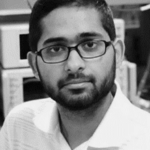 Intikhab Hussain received the B.Sc. degree (Hons.) in information and communication system engineering from the School of Electrical Engineering and Computer Science (SEECS), National University of Science and Technology (NUST), Islamabad, Pakistan, in 2013, the M.Sc. degree from the University of the Witwatersrand (Wits), Johannesburg, South Africa, in 2017, and the Ph.D. degree from the Department of Electrical Engineering, Polytechnique Montréal, University of Montreal, Montreal, QC, Canada, in 2022.
Intikhab Hussain received the B.Sc. degree (Hons.) in information and communication system engineering from the School of Electrical Engineering and Computer Science (SEECS), National University of Science and Technology (NUST), Islamabad, Pakistan, in 2013, the M.Sc. degree from the University of the Witwatersrand (Wits), Johannesburg, South Africa, in 2017, and the Ph.D. degree from the Department of Electrical Engineering, Polytechnique Montréal, University of Montreal, Montreal, QC, Canada, in 2022.
In 2014, he was a Research Intern with the King Abdullah University of Science and Technology (KAUST), Thuwal, Saudi Arabia. From 2015 to 2017, he was a Research Assistant with the University of the Witwatersrand (Wits). From 2017 to 2022, he was a Research Assistant with the Poly-Grames Research Center, Polytechnique Montréal. He is currently a Senior System Engineer at Peraso Technologies. His current research interests include radio communication and sensing, multiport interferometric structures, multifunction wireless systems, reconfigurable radio frequency (RF) front-end architectures, RF system characterization, wireless power transfer, and radio propagation.
Mr. Hussain was a recipient of the IEEE MTT-S Graduate Fellowship Award in 2021, the Fonds de Recherche du Québec Nature et Technologies (FRQNT) Doctoral Fellowship Award from the Government of Quebec in 2021, the Student Grant of the European Microwave Week in 2020, the IEEE MTT-S Ph.D. Student Sponsorship Initiative in 2019, and the Student Grant of the European Microwave Week in 2019. He was a Winner (first rank) of the Student Challenge during the 2019 European Microwave Week.
 Parinaz Naseri received her M.S. and Ph.D. in Electrical and Computer Engineering (ECE) from the University of Alberta, and the University of Toronto (UofT), Canada, in 2017 and 2023, respectively. In 2016-2017, she worked as a research associate on European Space Agency-funded projects at the Institution of Telecommunications in Lisbon, Portugal. She is currently a senior hardware & antenna engineer at Novamera Inc., a startup developing clean technologies for surgical mining. Dr. Naseri has authored or coauthored more than 30 IEEE conference papers and journal articles. She was a recipient of the Stanley G. Jones Master’s Scholarship in 2014, the prestigious Ontario Trillium Scholarship in 2018, the Donald R. Studney Electromagnetics Graduate Award, the IEEE Antennas & Propagation Society Doctoral Grant in 2020, IEEE AP-S Mojgan Daneshmand Grant, and IEEE Toronto Section Outstanding New Leader Award in 2022. She was also the UofT ECE department’s 2022-2023 nominee for the Canada’s Governor’s General Gold medal, and the IEEE R.W.P. King Award nominee for the best paper published in IEEE Transactions on Antennas and Propagation in 2021. Dr. Naseri served as the organizer and chair of the IEEE AP-S University of Toronto Student Branch Chapter in 2022-2023. She is currently the chair of the Consultants’ Network at the IEEE Toronto Section.
Parinaz Naseri received her M.S. and Ph.D. in Electrical and Computer Engineering (ECE) from the University of Alberta, and the University of Toronto (UofT), Canada, in 2017 and 2023, respectively. In 2016-2017, she worked as a research associate on European Space Agency-funded projects at the Institution of Telecommunications in Lisbon, Portugal. She is currently a senior hardware & antenna engineer at Novamera Inc., a startup developing clean technologies for surgical mining. Dr. Naseri has authored or coauthored more than 30 IEEE conference papers and journal articles. She was a recipient of the Stanley G. Jones Master’s Scholarship in 2014, the prestigious Ontario Trillium Scholarship in 2018, the Donald R. Studney Electromagnetics Graduate Award, the IEEE Antennas & Propagation Society Doctoral Grant in 2020, IEEE AP-S Mojgan Daneshmand Grant, and IEEE Toronto Section Outstanding New Leader Award in 2022. She was also the UofT ECE department’s 2022-2023 nominee for the Canada’s Governor’s General Gold medal, and the IEEE R.W.P. King Award nominee for the best paper published in IEEE Transactions on Antennas and Propagation in 2021. Dr. Naseri served as the organizer and chair of the IEEE AP-S University of Toronto Student Branch Chapter in 2022-2023. She is currently the chair of the Consultants’ Network at the IEEE Toronto Section.
Heidi Bathory, Space Systems Design Engineer at MDA. – Heidi is a Systems Design / Integration Engineer working at MDA on the Canadarm3 project. She has a background in aerospace electronics and systems, and has experience working in the naval, aerospace, and space industries.
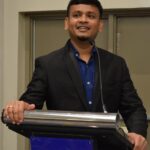 Raghav Thanigaivel is a Senior Engineer at Telus Mobility and is responsible for the automation of their 4G and 5G Wireless Core Networks. Previously he was stationed at National Institute of Standards and Technology (NIST) in the USA, to develop software for Wireless R&D activities in the Public Safety Communications Research (PSCR) division. He is also a former employee of IBM India, where he worked on Systems Engineering software development for AT&T USA.
Raghav Thanigaivel is a Senior Engineer at Telus Mobility and is responsible for the automation of their 4G and 5G Wireless Core Networks. Previously he was stationed at National Institute of Standards and Technology (NIST) in the USA, to develop software for Wireless R&D activities in the Public Safety Communications Research (PSCR) division. He is also a former employee of IBM India, where he worked on Systems Engineering software development for AT&T USA.
He holds a Masters Degree in Telecommunications from University of Colorado Boulder, USA and a Bachelors Degree in Electronics and Communication Engineering from Amrita University, India. He is an IEEE Senior Member, a Professional Engineer in Canada and has obtained multiple certifications, including IEEE’s very own Wireless Communications Professional (WCP) credential. In his spare time, he volunteers with various entities such as the IEEE and the York Region Amateur Radio Club. He is currently the Chair and Coordinator for IEEE Canada Young Professionals Committee. He possesses an Advanced Qualification Ham Radio License and is also an Advanced Operations Drone Pilot & Flight Reviewer in Canada.
Abstract: To be confirmed
Questions:
- What’s your opinion on attending Grad School? Should students obtain M.Sc or Ph.D before getting a job?
- What are the key difference between working in the private sector, government organizations and academia?
- What are your tips for finding positions in the private sector, government organizations, or academia after graduation?
- What are the impacts of the doing volunteering work (i.e., extracurricular activities) in your career and personal life?
- How to become successful in the career development journey?
Topic #2: Leadership in Tech World
Time: 16:45 – 17:30
Speakers:
Jenny Alfandary, Board Director at Touchstone Exploration Inc.
Dr. Maryam Davoudpour, Chair of IEEE Toronto Section, Professor at Toronto Metropolitan University.
Azadeh Saeedi, Director at Surgically Clean Air Inc.
Dr. Marjan Alavi, Assistant Professor at McMaster University.
Dr. Armaghan Eshaghi, Technical Lead at Huawei.
Dr. Masoud Bashari, Director of AI and Software Development at IEMS Ltd.
Dr. Nima Bayat, Senior Antenna Designer at Peraso Inc.
Speaker Bios:
 Jenny Alfandary, ICD.D, Corporate Director | Award Winning President and CEO
Jenny Alfandary, ICD.D, Corporate Director | Award Winning President and CEO
As President and CEO, coupled with the experience as a disciplined engineer, Jenny possesses the characteristics of a visionary leader who is comfortable seeking out and taking the road less traveled. She can envision and realize opportunities and solutions for a business that few others can. She is fiercely driven by business success and lives and breathes progressive excellence in herself and motivates and inspires the same in her organizations. Most recently, Jenny has been called on to provide guidance and input into shaping public policy and regulation based on her diverse and successful experiences.
Since 2020, Jenny has provided leadership in the distribution of electrical services as the President and CEO of Westario Power. In this role, she is focused on a vision of growth, community prosperity and excellence for the organization.
She provides her expertise to several boards of directors, including Touchstone Exploration: TXP (TSE), and as Co-Chair of Energy [X] Change, a committee to the Ontario Energy Board. Jenny is also honoured to serve as a board member of the MEARIE Group and the Mackenzie Institute, and as the Chair of the Advisory Council for the Faculty of Engineering & Architectural Science at Toronto Metropolitan University.
With decades of experience in Innovation and Technology, Jenny is also a Professor at the School of Media Studies and Technology at the University of Guelph-Humber. She holds a Masters Degree in Management in Information Systems, Technology and Science from Tel Aviv University and ICD designation from University of Toronto, Rotman School of Management.
Jenny motivates by living the example – at her core she is defined and respected for her ability to create and deliver – it simply is not in her DNA to be mediocre. Jenny inspires all levels of teams and departments – because of her attention and expertise at all levels.
 Dr. Maryam Davoudpour received the MASc and PhD degrees from the Moscow State Technical University of Bauman in Information Technology and Control Complex Systems. She also completed a NSERC post-doctoral fellowship. She is a member of the DMZ (Digital Media Zone) at Ryerson University. Dr. Davoupour is with Ryerson University since 2008 and has joined Humber College in 2016. She has extensive industrial and academic experience and has been involved in various successful R&D projects. Dr. Davoudpour is the recipient of the Research Excellence award of Humber College President’s Award 2020.
Dr. Maryam Davoudpour received the MASc and PhD degrees from the Moscow State Technical University of Bauman in Information Technology and Control Complex Systems. She also completed a NSERC post-doctoral fellowship. She is a member of the DMZ (Digital Media Zone) at Ryerson University. Dr. Davoupour is with Ryerson University since 2008 and has joined Humber College in 2016. She has extensive industrial and academic experience and has been involved in various successful R&D projects. Dr. Davoudpour is the recipient of the Research Excellence award of Humber College President’s Award 2020.
Dr. Davoudpour’s research interests are in the areas of Nonlinear Modeling, Knowledge-Based Expert Systems, Petri Nets, Modeling Context-Aware Systems, and Internet of Things. She is an active reviewer of various IEEE publications and conferences.
Dr. Davoudpour is currently the Chair of the IEEE Toronto Section (2022-2025) and in the past, she has served as the Vice Chair (2020-2022) and Secretary (2018-2020) of the IEEE Toronto Section. She is also the chair of the IEEE Instrumentation, Measurement, Robotics and Automation chapter in Toronto and she is the Chair of Women in Engineering (WIE) at IEEE Toronto, as well as the vice-chair of WIE IEEE Canada and also WIE representative for Central Canada.
Dr. Davoudpour was selected as an Honorable Mention for the 2018 WIE Inspiring Member of the Year Award by the IEEE Women in Engineering Committee (WIEC), for her inspirational leadership and outstanding contributions to the IEEE WIE and IEEE communities. The purpose of this award is to recognize a professional member of IEEE Women in Engineering (WIE) who has made an outstanding contribution to WIE, their community and the engineering community, through dedication and involvement in projects or activities directed toward fulfilling one or more of the WIE goals and objectives.
The WIEC also selected the IEEE Toronto WIE Affinity Group as the recipient of an Honorable Mention for 2018, 2019, and 2021 WIE Affinity Group of the Year Award.
Azadeh Saeedi, Director at Surgically Clean Air Inc.
Coming soon…
 Dr. Alavi is an Assistant Professor in the Faculty of Engineering, W Booth School of Practice and Technology. She is a Professional Engineer in the Province of Ontario. She has over 15 years of international experience in teaching and applying Electrical Engineering concepts to solve real industrial problems. Her research interest is developing model-based and data-driven approaches to predict and control the behavior of hybrid systems.
Dr. Alavi is an Assistant Professor in the Faculty of Engineering, W Booth School of Practice and Technology. She is a Professional Engineer in the Province of Ontario. She has over 15 years of international experience in teaching and applying Electrical Engineering concepts to solve real industrial problems. Her research interest is developing model-based and data-driven approaches to predict and control the behavior of hybrid systems.
Did you know…
Dr. Alavi is an executive member of IEEE Toronto Section serving almost 4000 members.
Dr. Alavi is a Technical Reviewer of IEEE Transactions on Industrial Electronics.
Dr. Alavi is a Professional Engineer in the province of Ontario (P.Eng.).
 Dr. Eshaghi is currently a technical lead in Huawei Canada, Toronto Research Center, where she leads a team of competent researchers in a multidisciplinary field. She is focused on building the next-generation wireless and optical communication networks by integrating disrupting technologies into the existing products. She has track record of transitioning research and emerging technologies into successful prototypes and products. Prior to this, she spent years in academia and industry working on next-gen technologies in RF and optical domains.
Dr. Eshaghi is currently a technical lead in Huawei Canada, Toronto Research Center, where she leads a team of competent researchers in a multidisciplinary field. She is focused on building the next-generation wireless and optical communication networks by integrating disrupting technologies into the existing products. She has track record of transitioning research and emerging technologies into successful prototypes and products. Prior to this, she spent years in academia and industry working on next-gen technologies in RF and optical domains.

Dr. Masoud Bashari holds a Ph.D. in Electrical Engineering and is a registered professional engineer, P.Eng. He has been a pivotal figure at IEMS Solution, transitioning from the role of Lead Data Scientist to Director of AI & Software Development and currently serving as Vice President of Software and Technology since 2021. Prior to this, he contributed significantly as the Software Solution Architect and filed three US provisional patents. Dr. Bashari’s career journey also includes his tenure as a Research Associate at Concordia University, specializing in energy management decision support systems. Earlier, he was a Research Assistant at Toronto Metropolitan University, focusing on social network data analysis. With an impressive publication record, Dr. Bashari has authored over 16 peer-reviewed conference and journal papers, specifically centered around applying AI models to energy systems and complex network analysis. His multidisciplinary expertise showcases his leadership, innovative mindset, and substantial contributions to both academia and the technology industry.
Dr. Nima Bayat, Senior Antenna Designer at Peraso Inc.
Coming soon
Abstract: To be confirmed
Questions:
- What are the most important characteristics of a successful leader?
- How to become a successful leader? How to teach leadership and inspire others to become a good leader?
- How to deal with difficult decisions (such as laying-off someone and stopping a project)? How to control the emotions in those difficult times so the team members don’t lose trust in your leadership?
- What are your suggestions for the visible minorities (especially women) to be successful in the tech world? What can we do to achieve a more inclusive tech community?
- Can you please share your personal journey to become a successful leader?
P10: Debating Panel – Technologies for 6G: Groundbreaking vs Impractical
Date: Wednesday 06 September
Time: 11:00 – 12:30
Location: Metropolitan West
Moderator: Peiying Zhu, Huawei
Speakers:
- Eric Dahlman, Ericsson
- Wen Tong, Huawei
- Wanshi Chen, Qualcomm
- John M. Cioffi, Stanford
Abstract: ITU-R WP5D has just completed the Framework Recommendation for IMT-2030, which is commonly known as the Global 6G Vision. Evolved communication-oriented scenarios for higher performance, larger coverage, and new beyond communication scenarios integrating sensing and AI services with communications are envisioned for the year 2030 and beyond. Research on candidate 6G radio technologies, on the other hand, started way earlier. Fundamental building blocks on the wireless transceiver chain have been re-opened and revisited with new proposals and debating questions at the same time. Whether new waveforms beyond OFDM-like would be needed, how reconfigurable intelligent surface compares with relays, gain or loss using AI-based physical layer transmission, are among the most frequently asked questions. In this panel, the moderator would like to bring many of such questions to the discussion, triggering some debating on the new ideas, groundbreaking or impractical, from the views of the panelists, who have all been working in wireless communications for decades and have gone through such self-questioning period many times. It is hoped that the discussion during the panel may inspire more solid research work toward the future 6G standardization and deployment.
Moderator bio:
 Peiying Zhu, Senior Vice President of Wireless Research, is a Huawei Fellow, IEEE Fellow and Fellow of Canadian Academy of Engineering. She is currently leading 6G wireless research and standardization in Huawei. The focus of her research is advanced radio access technologies. She is actively involved in 3GPP and IEEE 802 standards development. She has been regularly giving talks and panel discussions on 5G/6G vision and enabling technologies. She led the team to contribute significantly to 5G technologies and standardization. Many technologies developed by the team have been adopted into 5G standards and implemented in 5G products. She served as the guest editor for IEEE Signal processing magazine special issue on the 5G revolution and IEEE JSAC on Deployment Issues and Performance Challenges for 5G. Prior to joining Huawei in 2009, Peiying was a Nortel Fellow and Director of Advanced Wireless Access Technology in the Nortel Wireless Technology Lab. She led the team and pioneered research and prototyping on MIMO-OFDM and Multi-hop relay, which were adopted into LTE standards and 4G products. Dr. Zhu has more than 200 granted patents.
Peiying Zhu, Senior Vice President of Wireless Research, is a Huawei Fellow, IEEE Fellow and Fellow of Canadian Academy of Engineering. She is currently leading 6G wireless research and standardization in Huawei. The focus of her research is advanced radio access technologies. She is actively involved in 3GPP and IEEE 802 standards development. She has been regularly giving talks and panel discussions on 5G/6G vision and enabling technologies. She led the team to contribute significantly to 5G technologies and standardization. Many technologies developed by the team have been adopted into 5G standards and implemented in 5G products. She served as the guest editor for IEEE Signal processing magazine special issue on the 5G revolution and IEEE JSAC on Deployment Issues and Performance Challenges for 5G. Prior to joining Huawei in 2009, Peiying was a Nortel Fellow and Director of Advanced Wireless Access Technology in the Nortel Wireless Technology Lab. She led the team and pioneered research and prototyping on MIMO-OFDM and Multi-hop relay, which were adopted into LTE standards and 4G products. Dr. Zhu has more than 200 granted patents.
Speaker Bios:
 Erik Dahlman joined Ericsson in 1993 and is currently a Senior Expert in radio access technologies within Ericsson Research. He has been involved in the development of wireless access technologies from early 3G, through 4G LTE, and mostly 5G NR. He is currently focusing on the evolution of 5G as well as technologies applicable beyond 5G wireless access. He is the co-author of the books 3G Evolution – HSPA and LTE for Mobile Broadband, 4G – LTE and LTE-Advanced for mobile broadband, 4G – LTE-Advanced Pro and the Road to 5G and, most recently, 5G NR – the Next Generation Wireless Access Technology. He has a PhD in telecommunication from the Royal Institute of Technology (KTH), Stockholm, Sweden.
Erik Dahlman joined Ericsson in 1993 and is currently a Senior Expert in radio access technologies within Ericsson Research. He has been involved in the development of wireless access technologies from early 3G, through 4G LTE, and mostly 5G NR. He is currently focusing on the evolution of 5G as well as technologies applicable beyond 5G wireless access. He is the co-author of the books 3G Evolution – HSPA and LTE for Mobile Broadband, 4G – LTE and LTE-Advanced for mobile broadband, 4G – LTE-Advanced Pro and the Road to 5G and, most recently, 5G NR – the Next Generation Wireless Access Technology. He has a PhD in telecommunication from the Royal Institute of Technology (KTH), Stockholm, Sweden.
 Wen Tong is the CTO, Huawei Wireless. He is the head of Huawei wireless research. In 2011, Dr. Tong was appointed the Head of Communications Technologies Labs of Huawei. Currently, he is the Huawei 5G chief scientist and leads Huawei’s 10-year-long 5G wireless technologies research and development. Prior to joining Huawei in 2009, Dr. Tong was the Nortel Fellow and head of the Network Technology Labs at Nortel. He joined the Wireless Technology Labs at Bell Northern Research in 1995 in Canada. Dr. Tong is industry recognized leader in invention and standardization of advanced wireless technologies. He is the key contributor to 3GPP since its inception. Dr. Tong was elected as a Huawei Fellow and an IEEE Fellow. He was the recipient of IEEE Communications Society Industry Innovation Award for “the leadership and contributions in development of 3G and 4G wireless systems” in 2014, and IEEE Communications Society Distinguished Industry Leader Award for “pioneering technical contributions and leadership in the mobile communications industry and innovation in 5G mobile communications technology” in 2018. He is also the recipient of R.A. Fessenden Medal. He had pioneered fundamental technologies from 1G to 5G wireless with more than 450 granted US patents. Dr. Tong is a Fellow of Canadian Academy of Engineering, and he also serves as Board of Director of WiFi Alliance. He is based in Ottawa, Canada.
Wen Tong is the CTO, Huawei Wireless. He is the head of Huawei wireless research. In 2011, Dr. Tong was appointed the Head of Communications Technologies Labs of Huawei. Currently, he is the Huawei 5G chief scientist and leads Huawei’s 10-year-long 5G wireless technologies research and development. Prior to joining Huawei in 2009, Dr. Tong was the Nortel Fellow and head of the Network Technology Labs at Nortel. He joined the Wireless Technology Labs at Bell Northern Research in 1995 in Canada. Dr. Tong is industry recognized leader in invention and standardization of advanced wireless technologies. He is the key contributor to 3GPP since its inception. Dr. Tong was elected as a Huawei Fellow and an IEEE Fellow. He was the recipient of IEEE Communications Society Industry Innovation Award for “the leadership and contributions in development of 3G and 4G wireless systems” in 2014, and IEEE Communications Society Distinguished Industry Leader Award for “pioneering technical contributions and leadership in the mobile communications industry and innovation in 5G mobile communications technology” in 2018. He is also the recipient of R.A. Fessenden Medal. He had pioneered fundamental technologies from 1G to 5G wireless with more than 450 granted US patents. Dr. Tong is a Fellow of Canadian Academy of Engineering, and he also serves as Board of Director of WiFi Alliance. He is based in Ottawa, Canada.
 Wanshi Chen is currently 3GPP TSG RAN Plenary Chair appointed in April 2021. From August 2017 to May 2021, he was 3GPP TSG RAN1 Chair, where under this position, he has successfully managed and led successful delivery of the first and the second 5G New Radio (NR) releases. He was a RAN1 vice chair from August 2013 to August 2017. Wanshi has over 20 years of experiences in telecommunications in leading telecom companies including operators, infrastructure vendors, and chipset vendors. He has been with Qualcomm since 2006. The highest degree that Wanshi has received is a Ph.D. degree in electrical engineering from the University of Southern California, Los Angeles, CA, USA. Wanshi is an avid Marathon runner with a personal best time of 2 hours and 54 minutes.
Wanshi Chen is currently 3GPP TSG RAN Plenary Chair appointed in April 2021. From August 2017 to May 2021, he was 3GPP TSG RAN1 Chair, where under this position, he has successfully managed and led successful delivery of the first and the second 5G New Radio (NR) releases. He was a RAN1 vice chair from August 2013 to August 2017. Wanshi has over 20 years of experiences in telecommunications in leading telecom companies including operators, infrastructure vendors, and chipset vendors. He has been with Qualcomm since 2006. The highest degree that Wanshi has received is a Ph.D. degree in electrical engineering from the University of Southern California, Los Angeles, CA, USA. Wanshi is an avid Marathon runner with a personal best time of 2 hours and 54 minutes.
 John M. Cioffi (Life Fellow, IEEE) received the B.S. degree in electrical engineering from the University of Illinois at Urbana–Champaign in 1978 and the Ph.D. degree in electrical engineering from Stanford University in 1984. He was with Bell Labs from 1978 to 1984. He was at IBM Research from 1984 to 1986. He is a Founder of Amati Communications Corporation in 1991 (1997 purchased by TI). He is the Chairman and the CEO of ASSIA Inc. He has been a Professor of electrical engineering at Stanford University since 1986 (now recalled emeritus). He has published more than 800 papers and more than 150 heavily licensed patents. His specific interest is in the area of high-performance digital transmission. He is a member of Internet (since 2014), the Consumer Electronics Halls of Fame (since 2018), the U.S. National Academy of Engineering (since 2001), and the U.K. Royal Academy of Engineering (since 2009). He is a Marconi Fellow (since 2006). He received the IEEE AG Bell Medal in 2010, the Kirchmayer Medal in 2014, and the Millennium Medal in 2000. He has served over a dozen boards of directors. Currently, he severs as the Chairman of the Board of PhyTunes and the Vice-Chairman of the Board of the Marconi Society and Tinoq Inc.
John M. Cioffi (Life Fellow, IEEE) received the B.S. degree in electrical engineering from the University of Illinois at Urbana–Champaign in 1978 and the Ph.D. degree in electrical engineering from Stanford University in 1984. He was with Bell Labs from 1978 to 1984. He was at IBM Research from 1984 to 1986. He is a Founder of Amati Communications Corporation in 1991 (1997 purchased by TI). He is the Chairman and the CEO of ASSIA Inc. He has been a Professor of electrical engineering at Stanford University since 1986 (now recalled emeritus). He has published more than 800 papers and more than 150 heavily licensed patents. His specific interest is in the area of high-performance digital transmission. He is a member of Internet (since 2014), the Consumer Electronics Halls of Fame (since 2018), the U.S. National Academy of Engineering (since 2001), and the U.K. Royal Academy of Engineering (since 2009). He is a Marconi Fellow (since 2006). He received the IEEE AG Bell Medal in 2010, the Kirchmayer Medal in 2014, and the Millennium Medal in 2000. He has served over a dozen boards of directors. Currently, he severs as the Chairman of the Board of PhyTunes and the Vice-Chairman of the Board of the Marconi Society and Tinoq Inc.
P11: Empower Your Passion as a Woman in Engineering WICE – Panel Lunch
Date: Thursday 07 September
Time: 12:30 – 14:00
Location: Dockside 9
Moderator: Monireh Vamegh, Huawei Technologies, Canada
Moderator Bio:
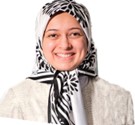 Monireh Vamegh (Monirosharieh Vameghestahbanati) received the Ph.D. degree in electrical engineering from Carleton University, Ottawa, ON, Canada, in 2020. Her Ph.D. thesis was nominated for Senate Medal for outstanding academic achievement. She is currently a Senior Wireless Research Engineer with the Huawei Technologies Canada Research Centre, Ottawa, and also an active member of IEEE young professionals. Her research interest includes the advanced physical-layer technologies for future wireless systems. She was a recipient of numerous awards, including the Ontario Trillium
Monireh Vamegh (Monirosharieh Vameghestahbanati) received the Ph.D. degree in electrical engineering from Carleton University, Ottawa, ON, Canada, in 2020. Her Ph.D. thesis was nominated for Senate Medal for outstanding academic achievement. She is currently a Senior Wireless Research Engineer with the Huawei Technologies Canada Research Centre, Ottawa, and also an active member of IEEE young professionals. Her research interest includes the advanced physical-layer technologies for future wireless systems. She was a recipient of numerous awards, including the Ontario Trillium
scholarship from 2013 to 2017, and the outstanding Teaching Assistant Award at Carleton University from 2017 to 2018. She is also a co-inventor of more than 12 patents.
Speakers:
Lian Zhao, Toronto Metropolitan University, Canada
Jianglei Ma, Huawei Technologies, Canada
Gunes Karabulut Kurt, Ecole Polytechnique Montreal, Canada
Toktam Mahmoodi, King’s College London, UK
Baek-Young Choi, University of Missouri, Kansas City, UMKC
Dongmei Zhao, McMaster University, Canada
Abstract: Organized by Women in Communications Engineering (WICE), this panel is in a casual form with a short opening and mainly Q&A during the lunch time. It invites top women from academia and industry to share their knowledge and experience on different aspects of work and life, e.g., the way they empower themselves to become professional, their experience leading a team, how to keep their passion high in professional areas while taking the duty as mothers, ways to achieve continuous learning in today’s evolutionary era of technology, etc.
Speaker Bios:
 Lian Zhao received the Ph.D. degree from the Department of Electrical and Computer Engineering (ELCE), University of Waterloo, Canada, in 2002. She joined the Department of Electrical and Computer Engineering at Toronto Metropolitan University (formerly Ryerson University), Canada, in 2003. Her research interests are in the areas of wireless communications, resource management, mobile edge computing, caching and communications, and IoV networks.
Lian Zhao received the Ph.D. degree from the Department of Electrical and Computer Engineering (ELCE), University of Waterloo, Canada, in 2002. She joined the Department of Electrical and Computer Engineering at Toronto Metropolitan University (formerly Ryerson University), Canada, in 2003. Her research interests are in the areas of wireless communications, resource management, mobile edge computing, caching and communications, and IoV networks.
She has been an IEEE Communication Society (ComSoc) and IEEE Vehicular Technology (VTS) Distinguished Lecturer (DL); received the Best Land Transportation Paper Award from IEEE Vehicular Technology Society in 2016, Top 15 Editor Award in 2016 for IEEE Transaction on Vehicular Technology, Best Paper Award from the 2013 International Conference on Wireless Communications and Signal Processing (WCSP), and the Canada Foundation for Innovation (CFI) New Opportunity Research Award in 2005.
She has been serving as an Editor for IEEE Transactions on Wireless Communications, IEEE Internet of Things Journal, and IEEE Transactions on Vehicular Technology (2013-2021). She served as a co-Chair of Wireless Communication Symposium for IEEE Globecom 2020 and IEEE ICC 2018; Finance co-Chair for 2021 ICASSP; Local Arrangement co-Chair for IEEE VTC Fall 2017 and IEEE Infocom 2014; co-Chair of Communication Theory Symposium for IEEE Globecom 2013. She has been an elected member for the Board of Governor (BoG) of VTS since 2023. She has severed as a panel expert in various federal, provincial, and international evaluation committees.
 Jianglei Ma is a Technical VP based at Huawei Ottawa R&D Center. Her research area is advanced wireless access technologies. She has been actively contributed to 3GPP standards since LTE. She led NR air interface research and is currently leading 6G air interface research in Huawei. Prior to joining Huawei in 2009, she was in charge of LTE air interface research in Wireless Technology Lab at Nortel. Jianglei Ma was a visiting Associate Professor of Dept. of Electrical and Computer Engineering at the University of Illinois at Urbana-Champaign and a Professor of National Laboratory of Millimeter Waves & Dept. of Electronic Engineering in Southeast University.
Jianglei Ma is a Technical VP based at Huawei Ottawa R&D Center. Her research area is advanced wireless access technologies. She has been actively contributed to 3GPP standards since LTE. She led NR air interface research and is currently leading 6G air interface research in Huawei. Prior to joining Huawei in 2009, she was in charge of LTE air interface research in Wireless Technology Lab at Nortel. Jianglei Ma was a visiting Associate Professor of Dept. of Electrical and Computer Engineering at the University of Illinois at Urbana-Champaign and a Professor of National Laboratory of Millimeter Waves & Dept. of Electronic Engineering in Southeast University.
 Gunes Karabulut Kurt received the B.S. degree with high honors in electronics and electrical engineering from Bogazici University, Istanbul, Turkey, in 2000 and the M.A.Sc. and the Ph.D. degrees in electrical engineering from the University of Ottawa, ON, Canada, in 2002 and 2006, respectively. From 2000 to 2005, she was a Research Assistant with the CASP Group, University of Ottawa. Between 2005 and 2006, she was with TenXc Wireless, Canada. From 2006 to 2008, Dr. Karabulut Kurt was with Edgewater Computer Systems Inc., Canada. From 2008 to 2010, she was with Turkcell Research and Development Applied Research and Technology, Istanbul. Between 2010 and 2021, she was with Istanbul Technical University. She is currently an Associate Professor of Electrical Engineering at Polytechnique Montréal, Montréal, QC, Canada. She is a Marie Curie Fellow and has received the Turkish Academy of Sciences Outstanding Young Scientist (TÜBA-GEBIP) Award in 2019. In addition, she is an adjunct research professor at Carleton University. She is currently serving as an associate technical editor of the IEEE Communications Magazine, an associate editor of IEEE Communication Letters, an associate editor of IEEE Wireless Communications Letters, and an area editor of IEEE Transactions on Machine Learning in Communications and Networking. She is a member of the IEEE WCNC Steering Board. She is serving as the secretary of IEEE Satellite and Space Communications Technical Committee and also the chair of the IEEE special interest group entitled “Satellite Mega-constellations: Communications and Networking”. She is a Distinguished Lecturer of Vehicular Technology Society Class of 2022.
Gunes Karabulut Kurt received the B.S. degree with high honors in electronics and electrical engineering from Bogazici University, Istanbul, Turkey, in 2000 and the M.A.Sc. and the Ph.D. degrees in electrical engineering from the University of Ottawa, ON, Canada, in 2002 and 2006, respectively. From 2000 to 2005, she was a Research Assistant with the CASP Group, University of Ottawa. Between 2005 and 2006, she was with TenXc Wireless, Canada. From 2006 to 2008, Dr. Karabulut Kurt was with Edgewater Computer Systems Inc., Canada. From 2008 to 2010, she was with Turkcell Research and Development Applied Research and Technology, Istanbul. Between 2010 and 2021, she was with Istanbul Technical University. She is currently an Associate Professor of Electrical Engineering at Polytechnique Montréal, Montréal, QC, Canada. She is a Marie Curie Fellow and has received the Turkish Academy of Sciences Outstanding Young Scientist (TÜBA-GEBIP) Award in 2019. In addition, she is an adjunct research professor at Carleton University. She is currently serving as an associate technical editor of the IEEE Communications Magazine, an associate editor of IEEE Communication Letters, an associate editor of IEEE Wireless Communications Letters, and an area editor of IEEE Transactions on Machine Learning in Communications and Networking. She is a member of the IEEE WCNC Steering Board. She is serving as the secretary of IEEE Satellite and Space Communications Technical Committee and also the chair of the IEEE special interest group entitled “Satellite Mega-constellations: Communications and Networking”. She is a Distinguished Lecturer of Vehicular Technology Society Class of 2022.
 Toktam Mahmoodi [S’06, M’09, SM’16] is a Professor of Communication Engineering and Director of the Centre for Telecommunications Research (CTR) in King’s College London. Previously, she was visiting research scientist at F5 Networks, research associate in Imperial College London, Mobile VCE researcher, and telecom R&D engineer. Toktam is and has been involved in number of European FP7 and H2020 projects on 5G mobile networks, vehicular communications, and Software-defined Networking. Her research focuses on the areas of mobile and cloud networking, and includes ultra-low latency networking, network virtualization, mobility management, network modelling and optimization. She has contributed to the ETSI, IETF and 3GPP standards, and has played an active role within 5GPPP in defining 5G vision for vertical industries. She has also served on number of editorial boards, and the roles include the executive editor of Transactions on Emerging Telecommunications Technologies, series guest editor of JSAC series on network softwarization, area editor of IEEE Communications Standard Magazine on management & orchestration, and editor of IEEE communication letters. Toktam served as general chair of ICT 2021, and has been technical committee chair and member of various IEEE ComSoc conferences.
Toktam Mahmoodi [S’06, M’09, SM’16] is a Professor of Communication Engineering and Director of the Centre for Telecommunications Research (CTR) in King’s College London. Previously, she was visiting research scientist at F5 Networks, research associate in Imperial College London, Mobile VCE researcher, and telecom R&D engineer. Toktam is and has been involved in number of European FP7 and H2020 projects on 5G mobile networks, vehicular communications, and Software-defined Networking. Her research focuses on the areas of mobile and cloud networking, and includes ultra-low latency networking, network virtualization, mobility management, network modelling and optimization. She has contributed to the ETSI, IETF and 3GPP standards, and has played an active role within 5GPPP in defining 5G vision for vertical industries. She has also served on number of editorial boards, and the roles include the executive editor of Transactions on Emerging Telecommunications Technologies, series guest editor of JSAC series on network softwarization, area editor of IEEE Communications Standard Magazine on management & orchestration, and editor of IEEE communication letters. Toktam served as general chair of ICT 2021, and has been technical committee chair and member of various IEEE ComSoc conferences.
 Dr. Baek-Young Choi is a Professor at the University of Missouri – Kansas City (UMKC). She received her Ph.D. degree in Computer Science and Engineering from the University of Minnesota, Twin Cities. She published three books on network monitoring, storage systems, and cloud computing. She has been a faculty fellow of the National Aeronautics and Space Administration (NASA), U.S. Air Force Research Laboratory’s Visiting Faculty Research Program (AFRL-VFRP) and Korea Telecom’s – Advance Institute of Technology (KT-AIT). She is an associate editor for IEEE Consumer ElectronicsMagazine and was an associate editor for IEEE Internet-of-Things Journal, Springer Journal of Telecommunication Systems, Elsevier Journal Computer Networks. Her research interests generally lie in the broad area of networking and communications, with specific emphasis on Internet-of-Things, software-defined networking, cybersecurity, smart city technologies. She is a senior member of ACM and IEEE, and a chair of IEEE Women in Communications Engineering (WICE).
Dr. Baek-Young Choi is a Professor at the University of Missouri – Kansas City (UMKC). She received her Ph.D. degree in Computer Science and Engineering from the University of Minnesota, Twin Cities. She published three books on network monitoring, storage systems, and cloud computing. She has been a faculty fellow of the National Aeronautics and Space Administration (NASA), U.S. Air Force Research Laboratory’s Visiting Faculty Research Program (AFRL-VFRP) and Korea Telecom’s – Advance Institute of Technology (KT-AIT). She is an associate editor for IEEE Consumer ElectronicsMagazine and was an associate editor for IEEE Internet-of-Things Journal, Springer Journal of Telecommunication Systems, Elsevier Journal Computer Networks. Her research interests generally lie in the broad area of networking and communications, with specific emphasis on Internet-of-Things, software-defined networking, cybersecurity, smart city technologies. She is a senior member of ACM and IEEE, and a chair of IEEE Women in Communications Engineering (WICE).
Dongmei Zhao received a BS degree in Wireless Communication from Northern Jiaotong University (now Beijing Jiaotong University), Beijing, China in 1992 and a Ph.D degree in the Department of Electrical and Computer Engineering, University of Waterloo, Waterloo, Ontario, Canada in June 2002. In July 2002 she joined the Department of Electrical and Computer Engineering at McMaster University, where she is a full professor. From April 2004 to March 2009 she was an adjunct assistant professor in the Department of Electrical and Computer Engineering at University of Waterloo. Dr. Zhao is an associate editor of the IEEE Internet of Things Journal. She served as an associate editor of the IEEE Transactions on Vehicular Technology between 2007 and 2017. She is a co-chair of the Project & Awards committee in the IEEE ComSoc Frontier Networking Symposium 2023, a co-chair of the Mobile and Wireless Networks Symposium of IEEE Global Communications Conference (GLOBECOM) 2020, a co-chair of the Wireless Networking Symposium in IEEE GLOBECOM 2007, a co-chair of the Green Computing, Networking, and Communications Symposium (GCNC) in International Conference on Computing, Networking and Communications 2020, a co-chair of the technical program committee for IEEE International Workshop on Computer Aided Modelling and Design of Communication Links and Networks (CAMAD) 2016, and a co-chair of the Vehicular Networks Symposium of IWCMC from 2012 to 2023. She is a senior member of IEEE and a Professional Engineer of Ontario. Her current research areas are mainly in digital twins, mobile computation offloading, energy efficient wireless networking, and vehicular communication networks.



